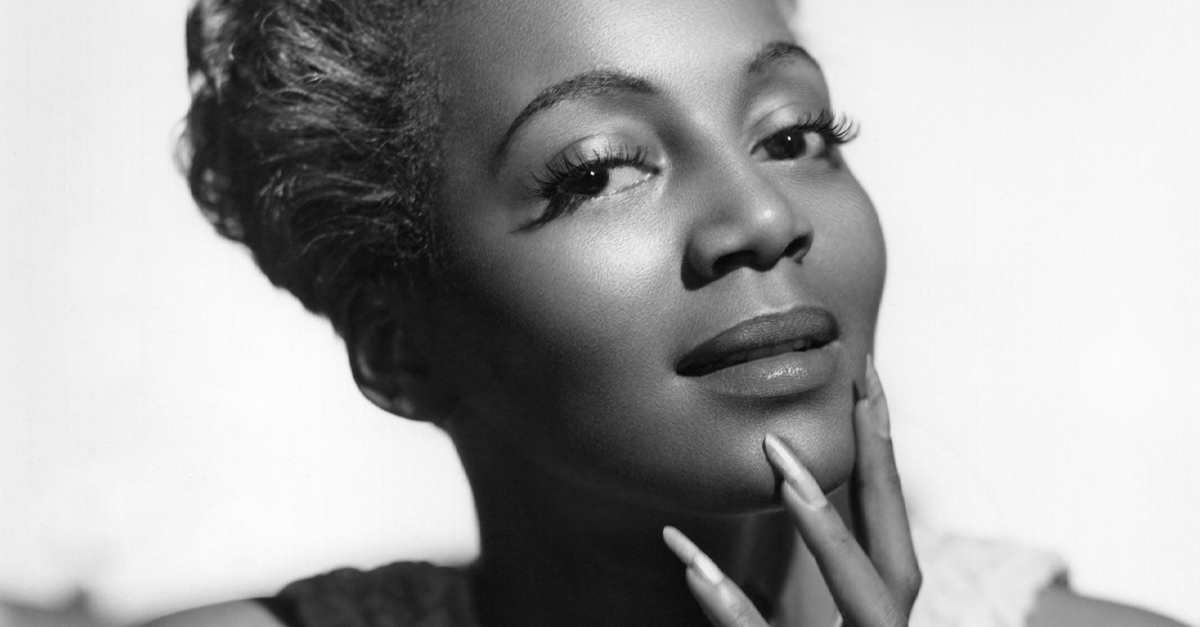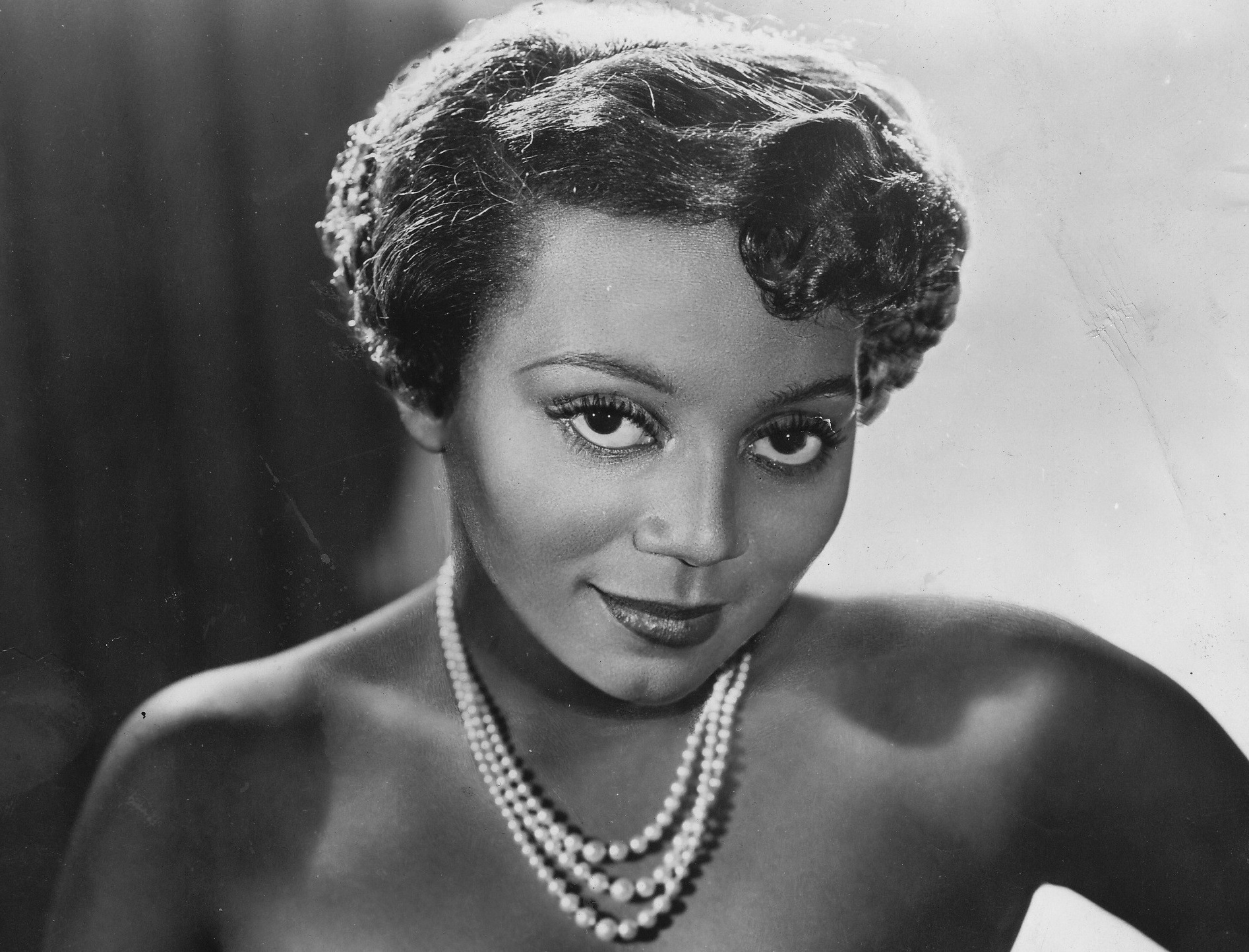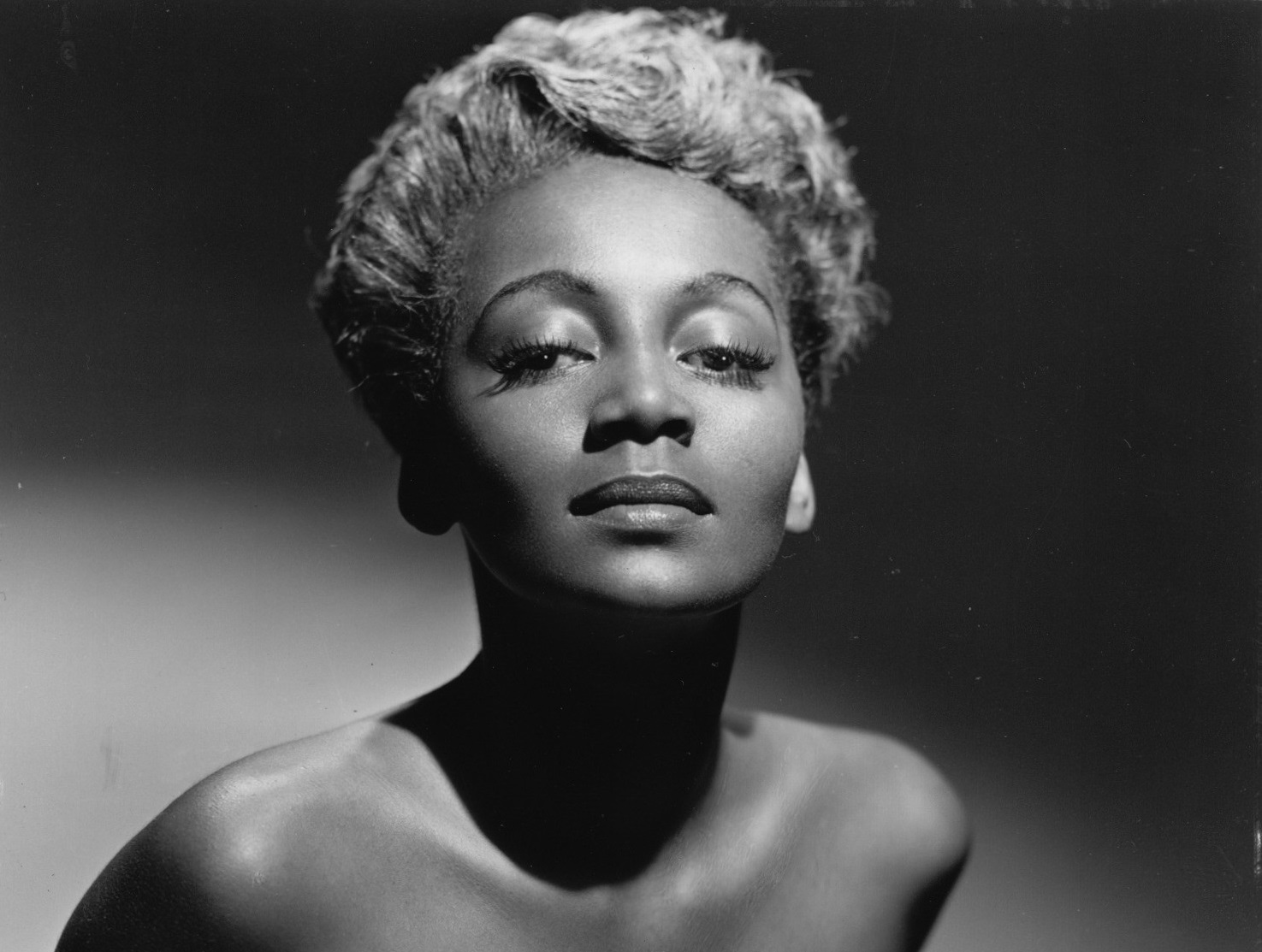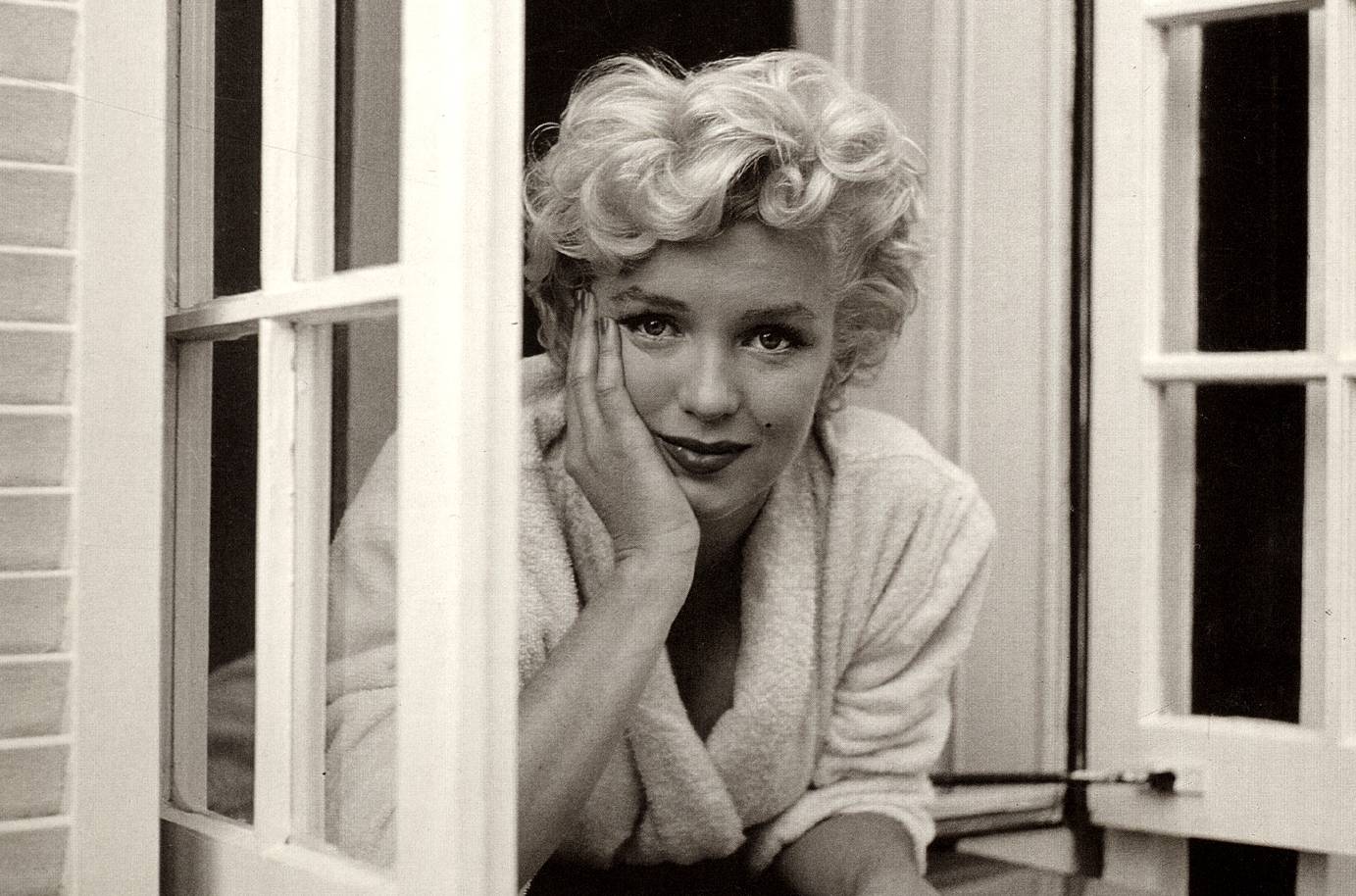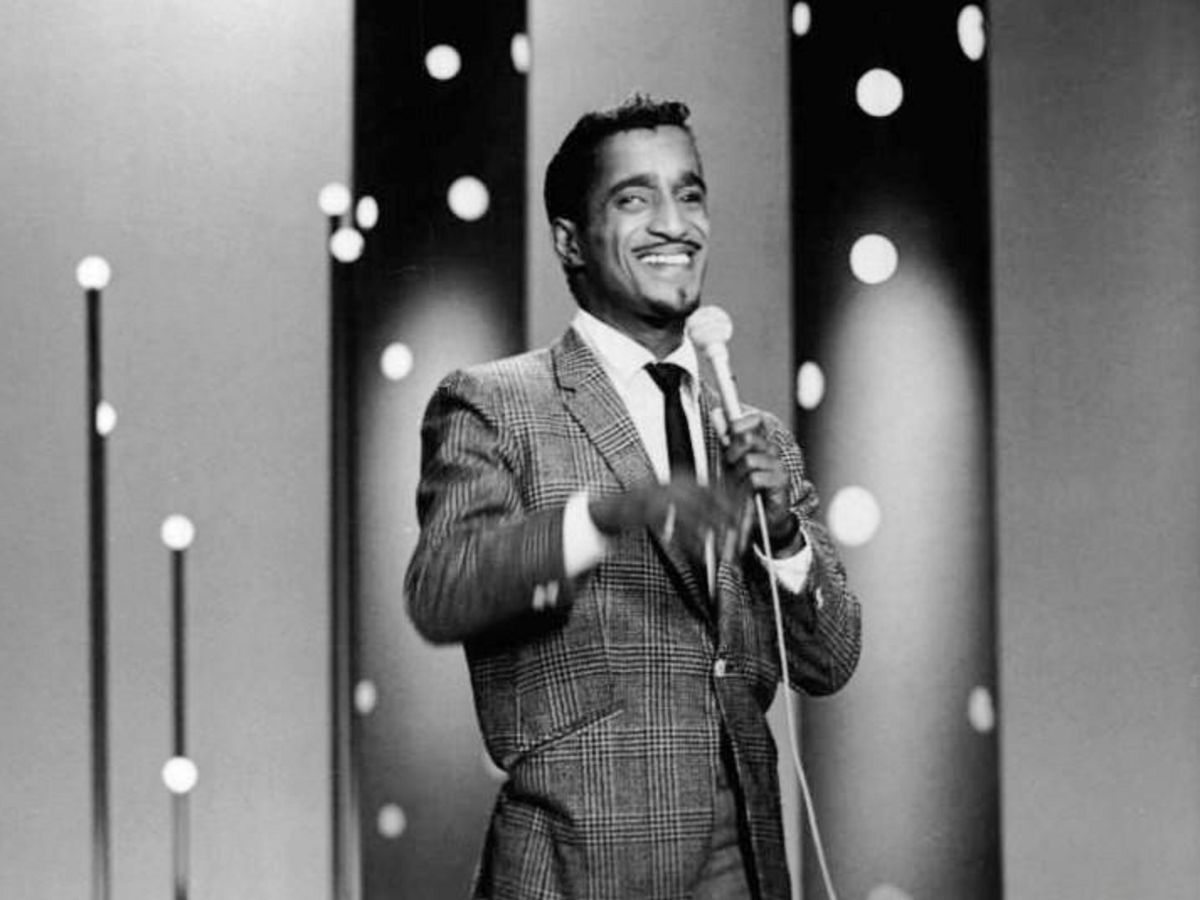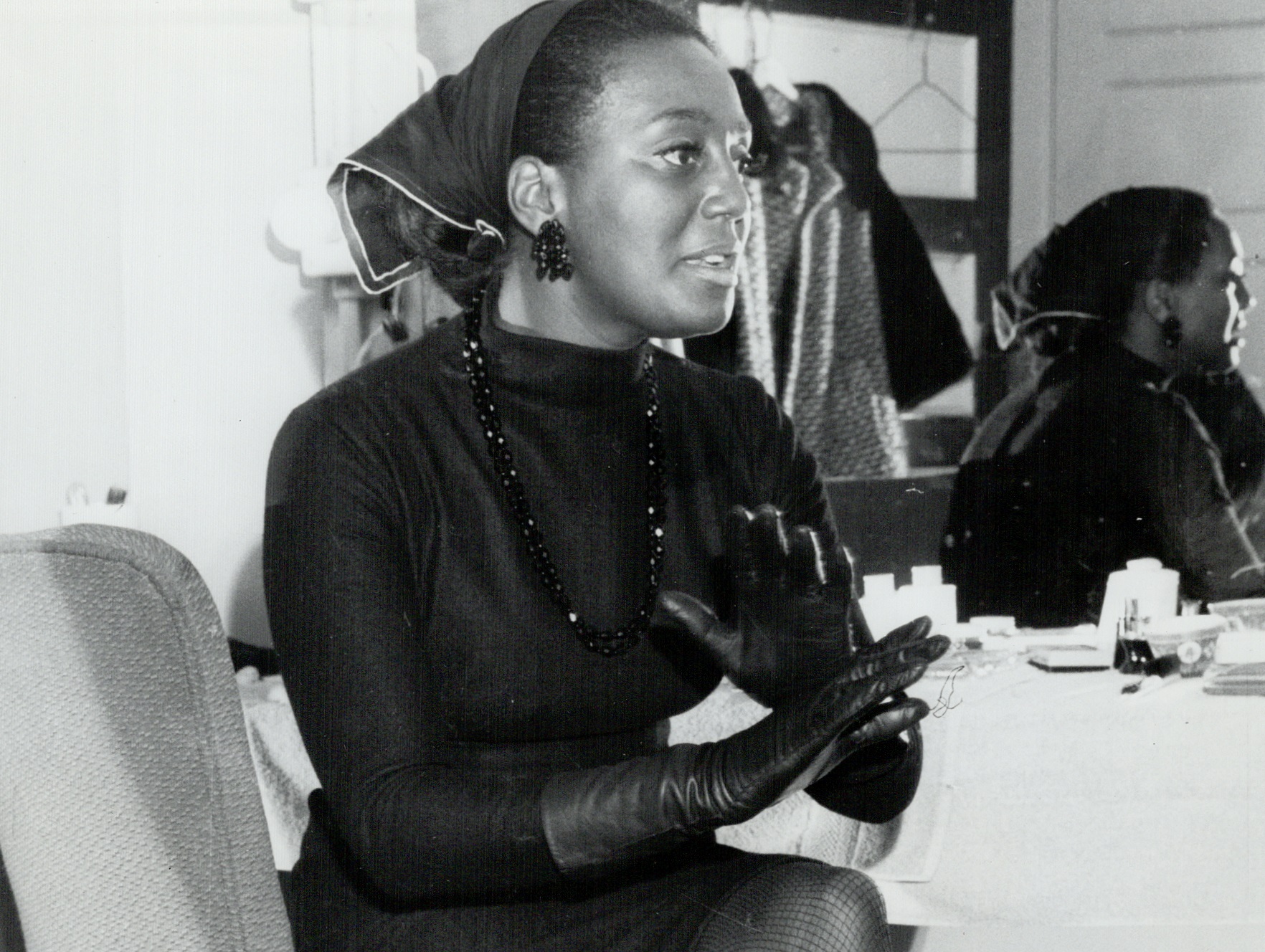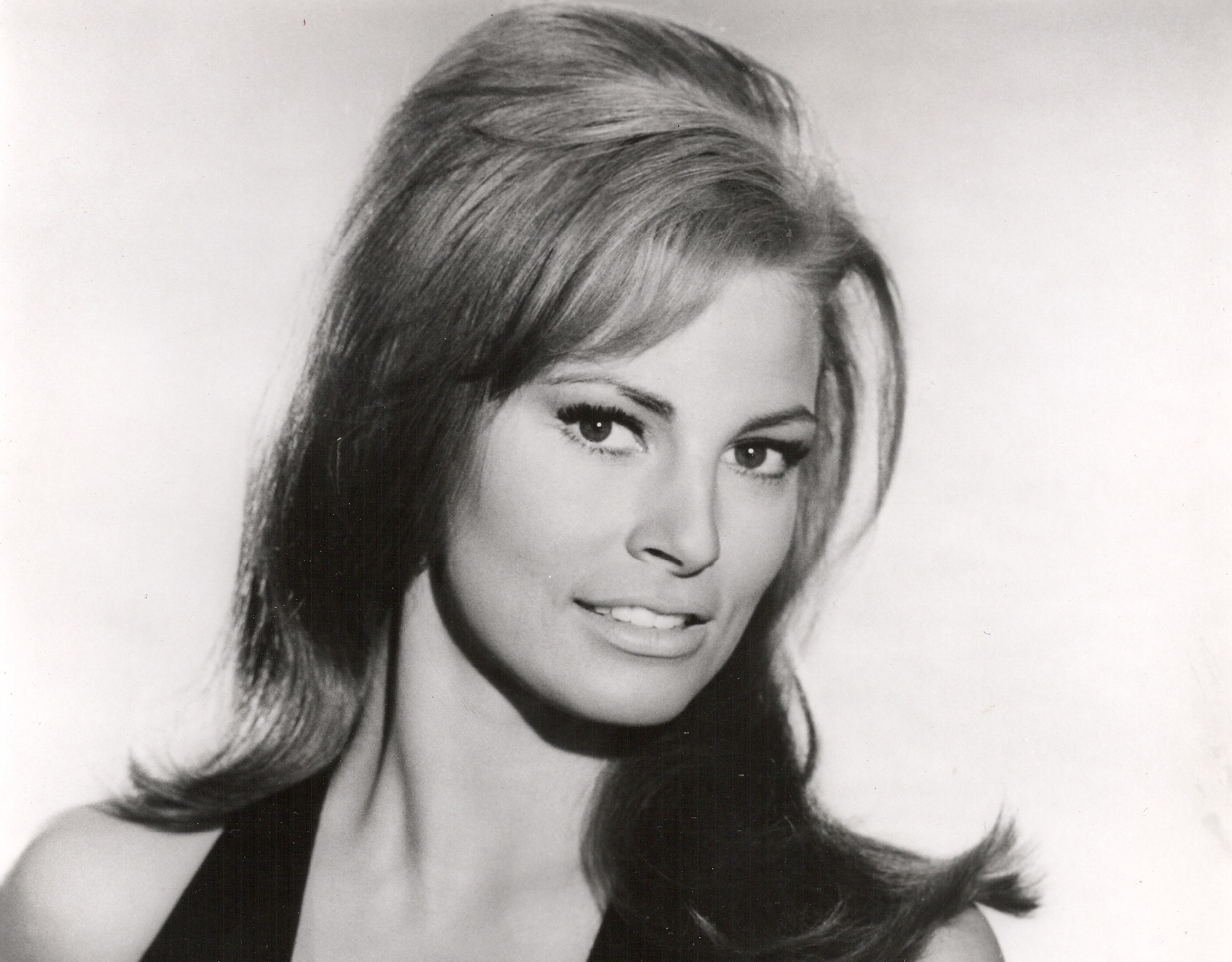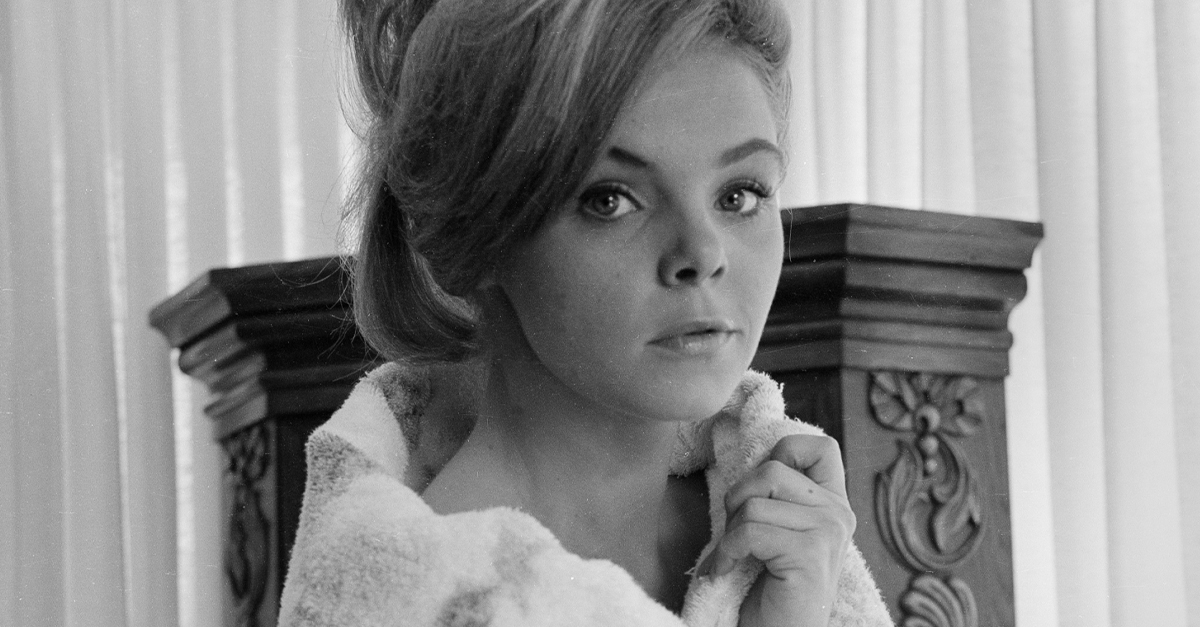Few know Joyce Bryant’s devastating life story—and the chilling reason she turned her back on fame and fortune.
1. She Gave It All Up
Joyce Bryant ignited the music industry with a four-octave range, an hourglass figure, and a handful of silver paint. So, why isn’t she a household name? By the age of 28, she’d given up the glamor, the big bucks and the fame, and turned her focus on helping the needy and fighting discrimination in America.
It was an incredible and abrupt turnaround, but she was far from finished. There were still more surprising twists and turns ahead.
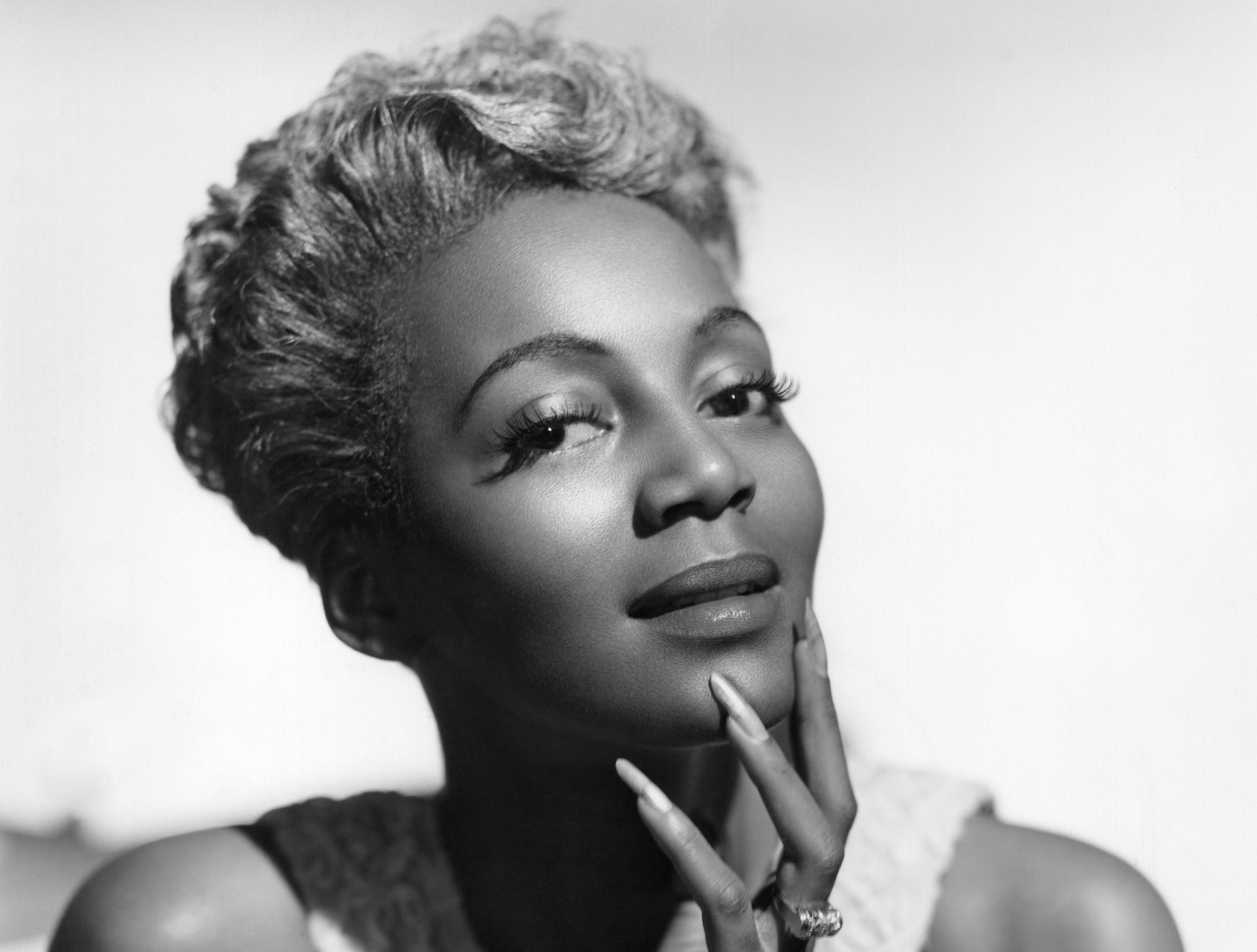 De Carvalho Collection, Getty Images
De Carvalho Collection, Getty Images
2. There Was A Full House
October 14, 1927 marks the day of Joyce Bryant’s birth in Oakland, California. As a child, Bryant may not have felt so special. You see, her parents were on a baby-making spree. When they finally tallied them all up, the Bryants had eight children. If you think this meant they ran a wild household, think again.
These parents had a very good reason for ruling with an iron fist.
3. She Couldn’t Move
The Bryant family were Seventh Day Adventists and that meant there were restrictions when it came to what the kids ate, drank, and wore. When Bryant started articulating what she wanted to be when she grew up, her parents said no to any kind of job that would go against what the church taught.
When Bryant finally decided on a career, it was the last thing her parents wanted to hear.
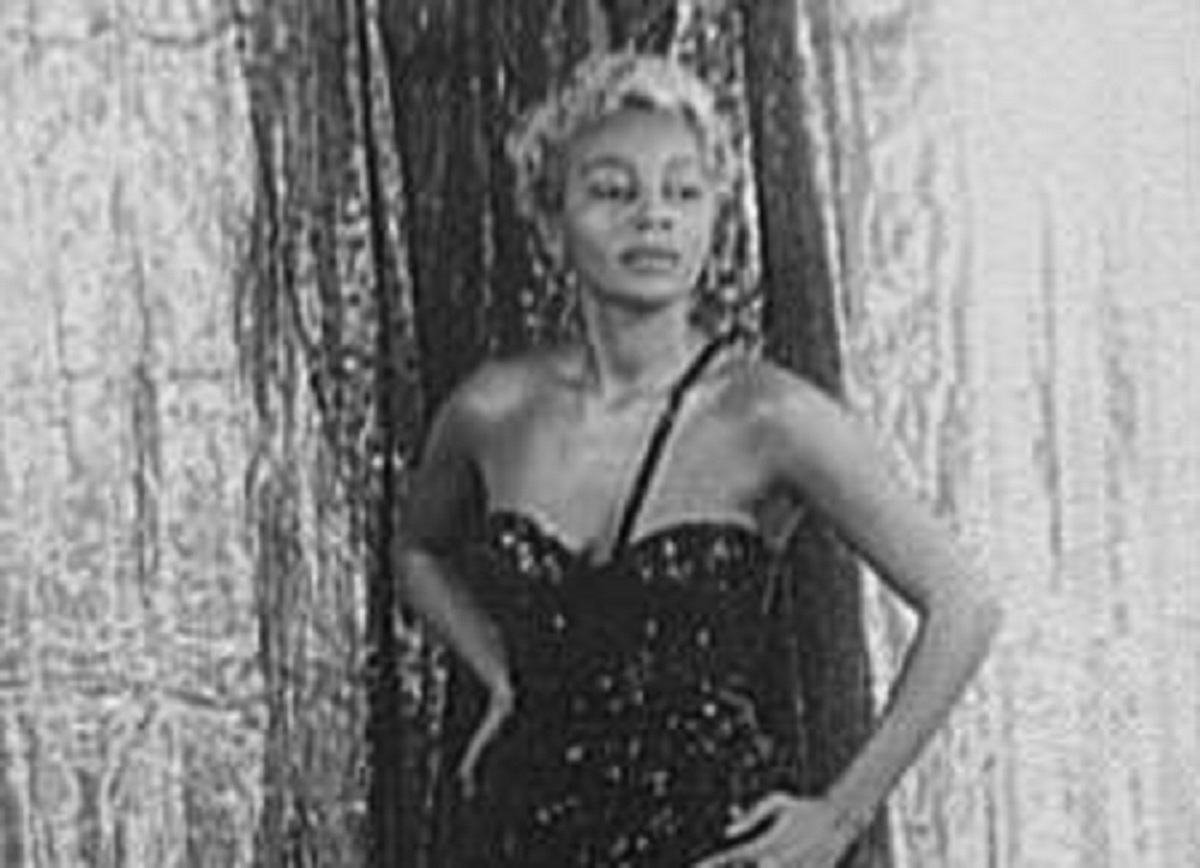 Carl Van Vechten, Wikimedia Commons
Carl Van Vechten, Wikimedia Commons
4. She Had A Dream
Bryant was dreaming of a career as a singer, but mom and dad quickly put the kibosh on that. Show business was no place for a nice Seventh Day Adventist girl. Bryant temporarily put that ambition aside, and focused on getting away from her oppressive home life. Her plan to do it was what I’d call... over the top.
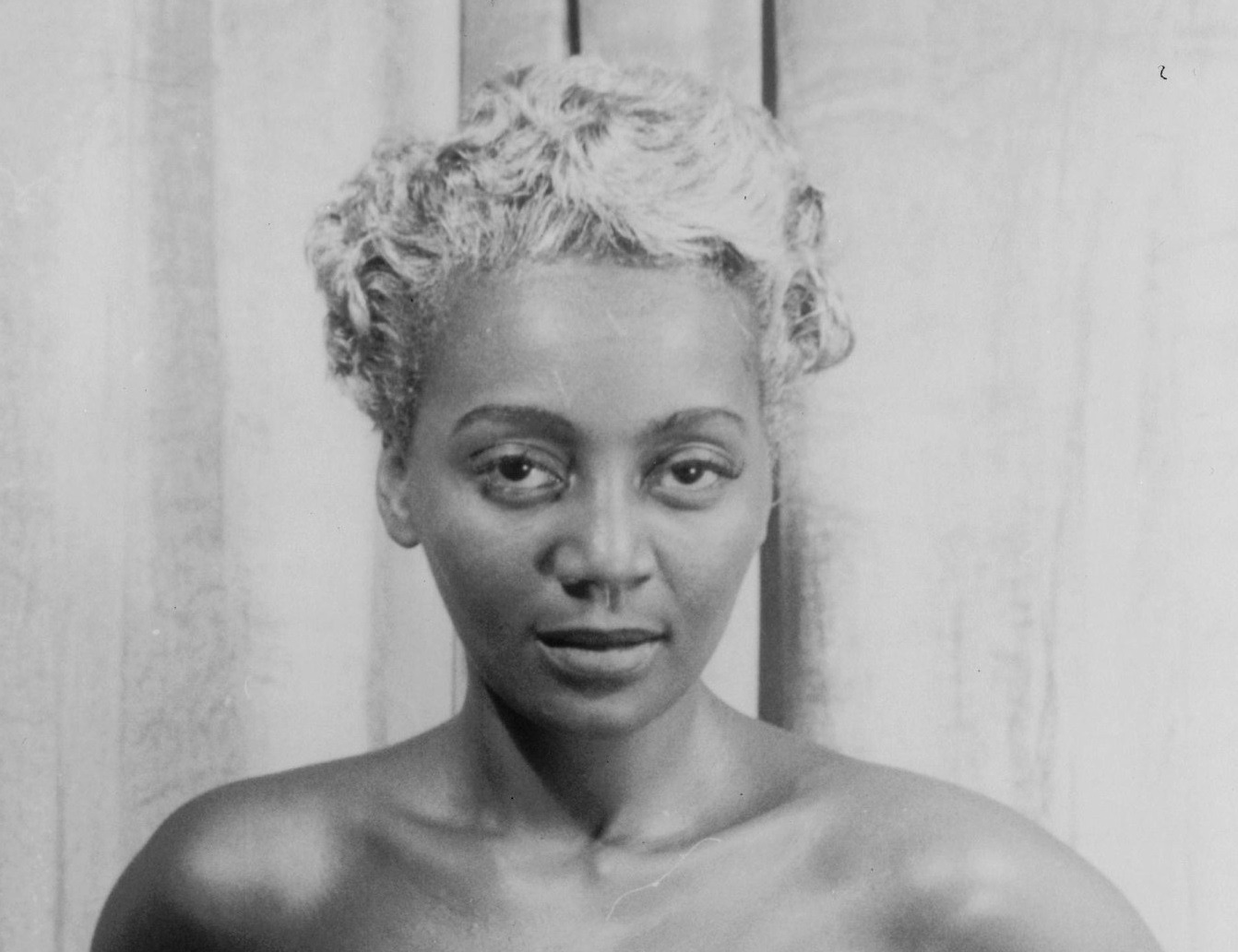 Carl Van Vechten, Wikimedia Commons
Carl Van Vechten, Wikimedia Commons
5. She Ran Away
Bryant didn’t see many opportunities to get away from her restrictive household, so she focussed on one. A guy. At 14 years of age, she ran off into the night with her much older boyfriend, and they secretly tied the knot. Mom tracked them down on their wedding night and forced an annulment.
Bryant’s parents quickly came up with a plan to set their daughter straight. It just wasn’t a very good one.
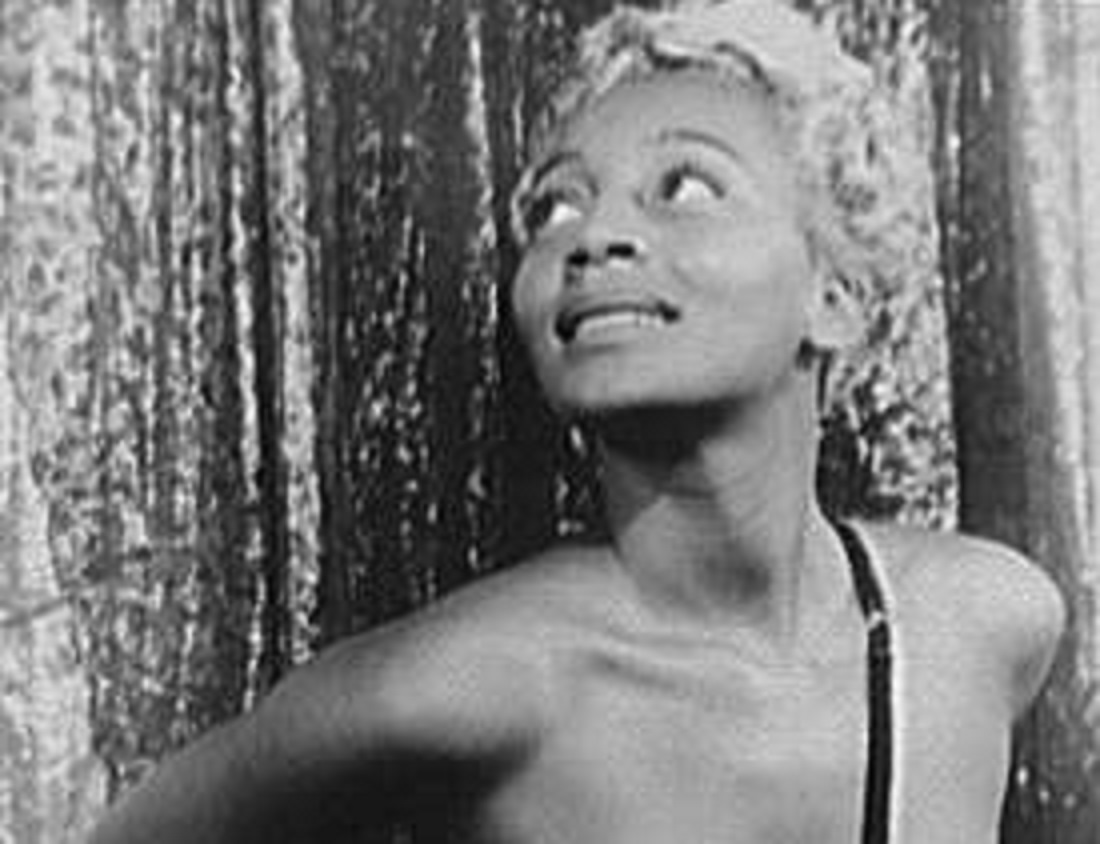 Carl Van Vechten, Wikimedia Commons
Carl Van Vechten, Wikimedia Commons
6. She Sang-A-Long
Bryant’s parents had great concern about Bryant's future, so they sent her off to live with her cousins in LA. What happened there certainly wasn't what her conservative parents had intended. Her cousins took her to a nightclub where there was a singalong. Bryant and her cousins joined in, but after a few songs Bryant looked around the club and noticed something shocking.
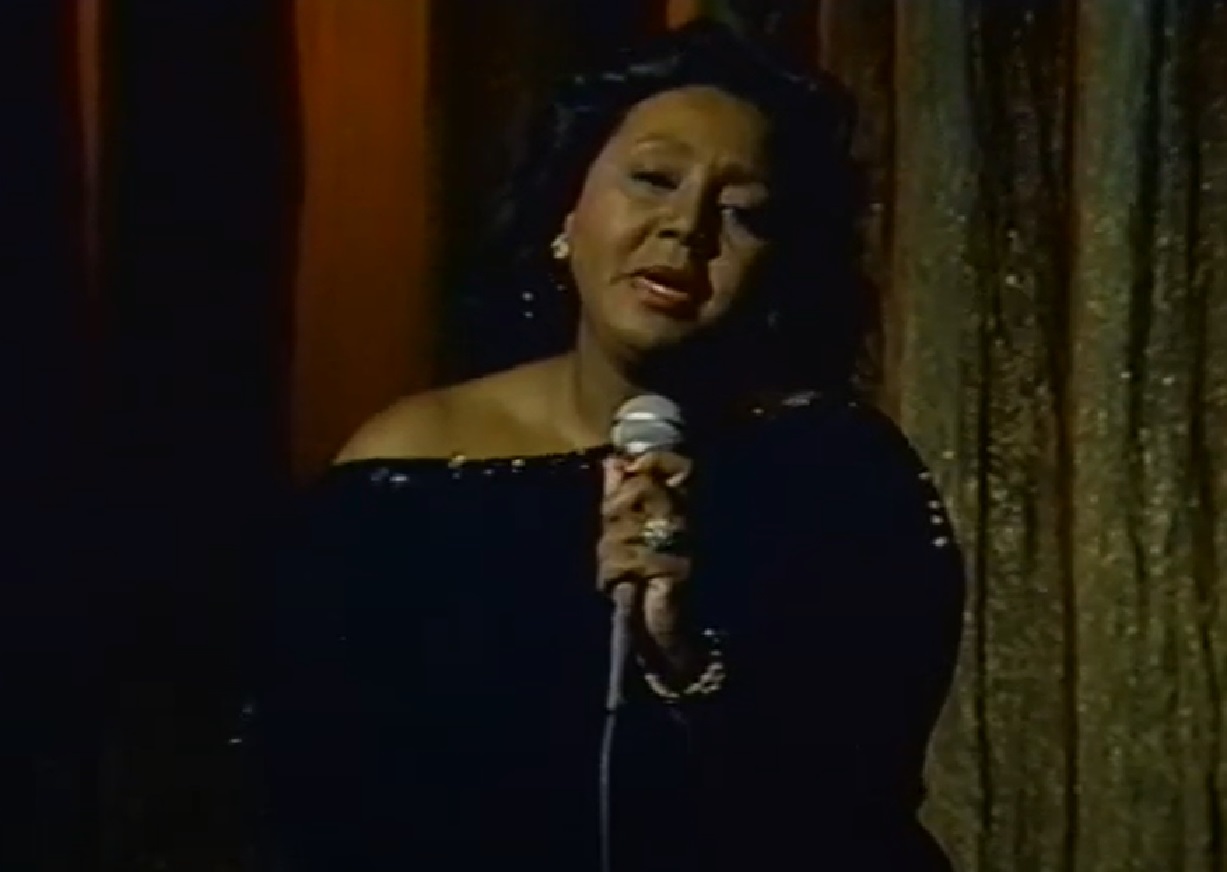 Metromedia, The David Susskind Show - (1958–1987)
Metromedia, The David Susskind Show - (1958–1987)
7. She Was All Alone
Even though the singlong was for everyone, Bryant saw that she was suddenly the only one singing. You see, Bryant’s voice was so beautiful that the other singers just wanted to hear her and her alone. The club owner was also mesmerized by Bryant’s voice, and he approached her with an amazing offer.
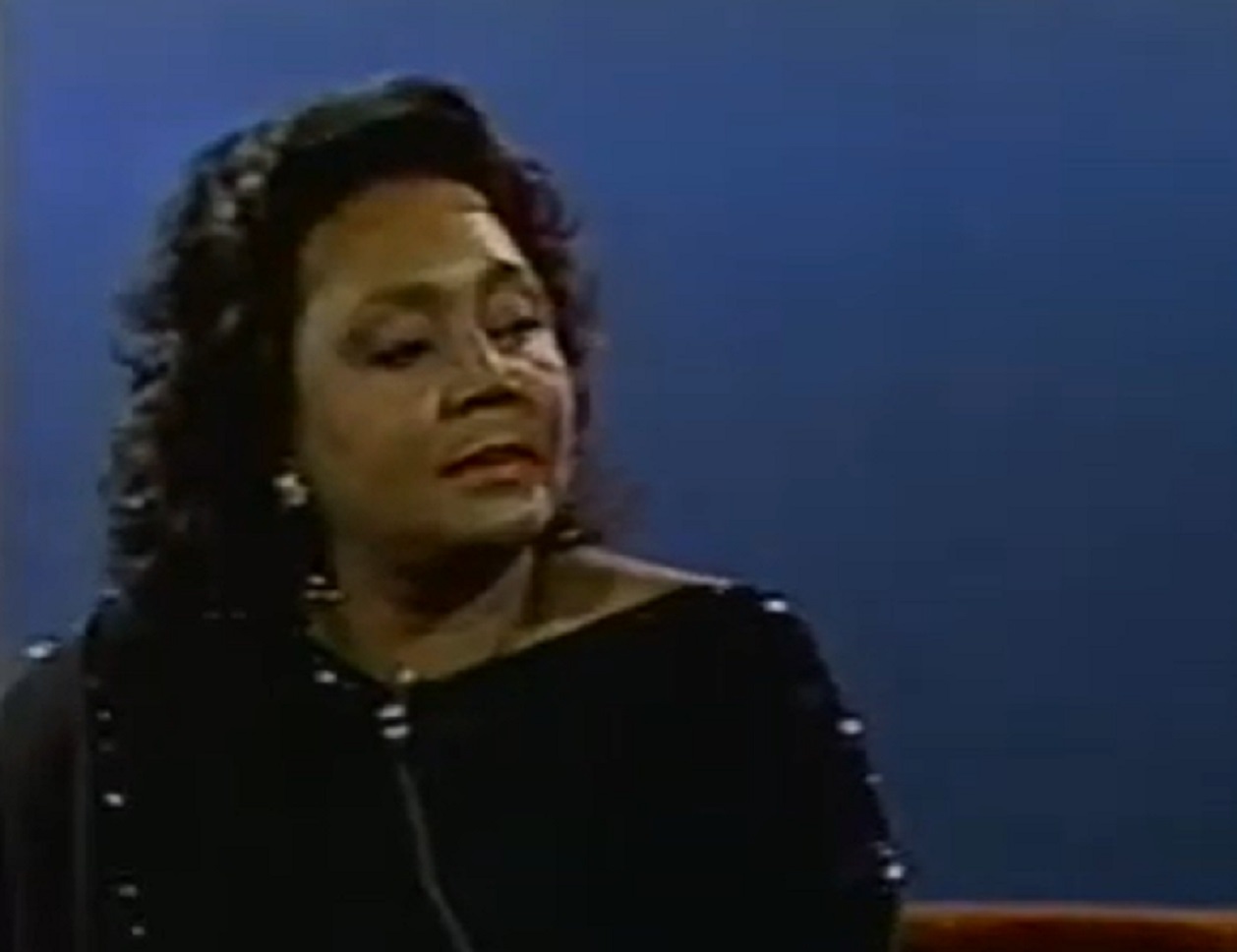 Metromedia, The David Susskind Show - (1958–1987)
Metromedia, The David Susskind Show - (1958–1987)
8. She Waited By The Phone
The owner of the club knew that Bryant had something special so he offered her $25 to go up on stage and sing. Obviously her parents would be livid, but Bryant said yes anyway. The $25 she got for a single performance soon became a two-week contract that paid her $250. But this was only the beginning.
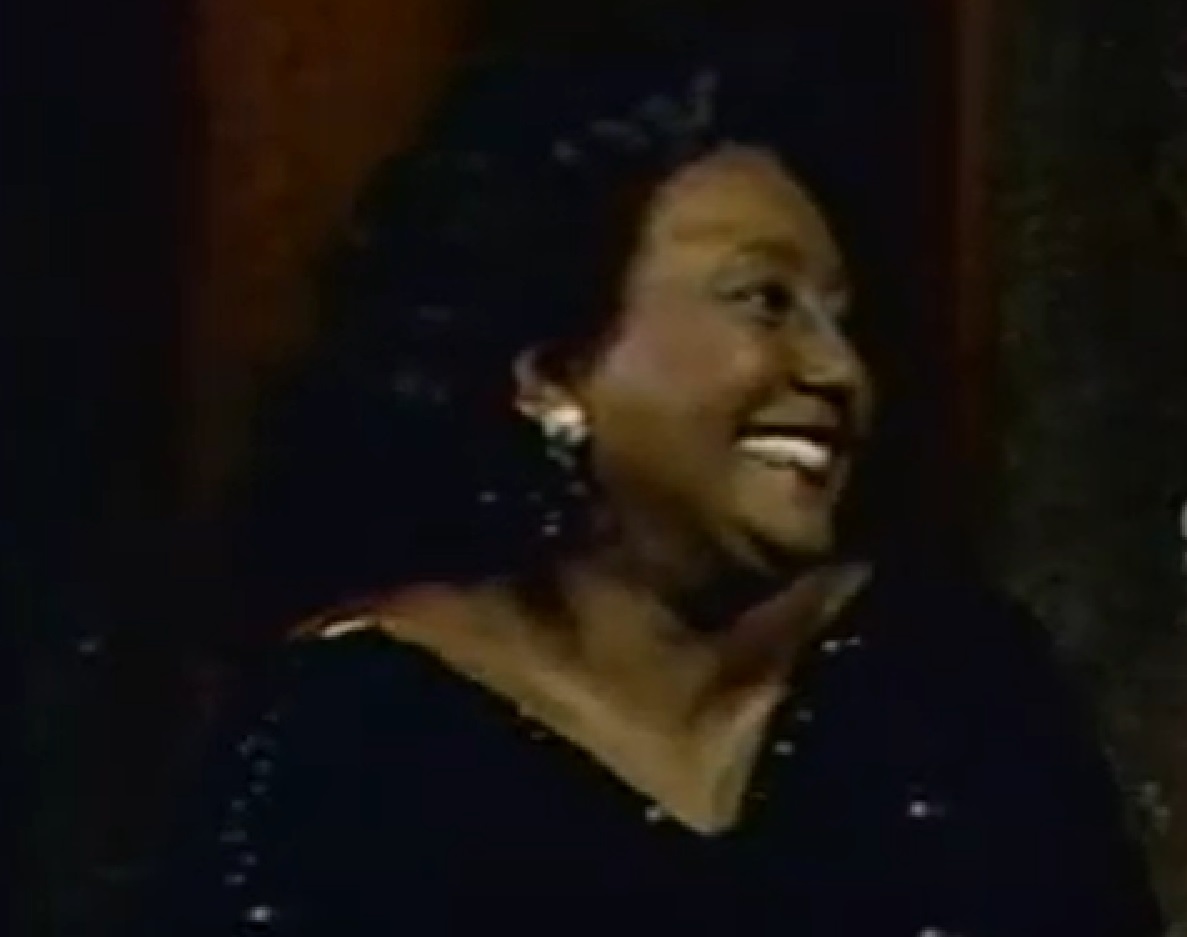 Metromedia, The David Susskind Show - (1958–1987)
Metromedia, The David Susskind Show - (1958–1987)
9. She Replaced A Star
Sadly Bryant’s big break had to come at someone else’s expense. Legendary performer Pearl Bailey had caught a nasty bout of laryngitis, and Ciro’s club in Hollywood contacted Bryant in desperate need of a replacement. Bryant happily stepped right in. Based on that success, Bryant was ready to risk it all and make a very big move.
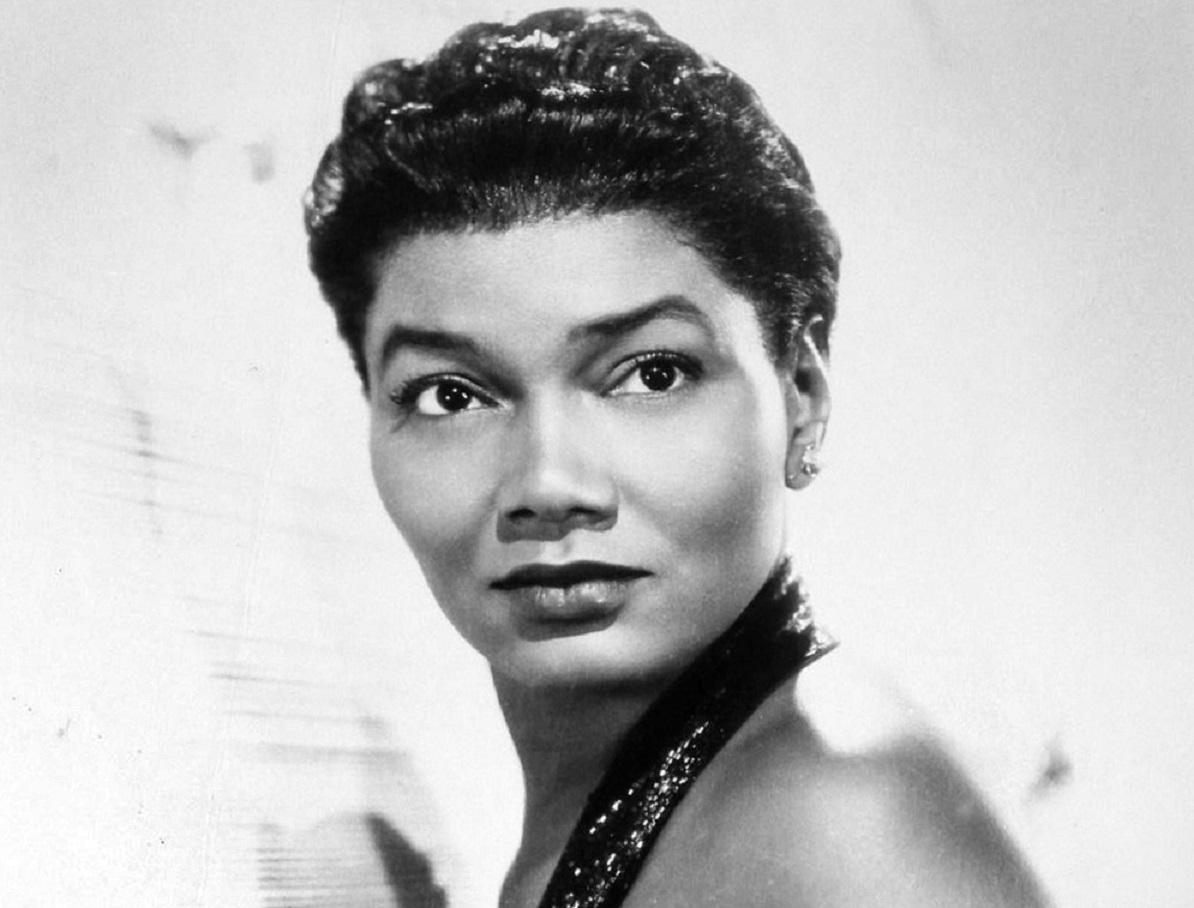 William Morris Agency, Wikimedia Commons
William Morris Agency, Wikimedia Commons

History's most fascinating stories and darkest secrets, delivered to your inbox daily.
10. She Moved Up
Bryant thought her career needed to head to one place and one place only: New York City. Once there, she got a regular gig at La Martinique, which earned her an astonishing $400 a week. Next was an offer of a tour of 118 shows in the Catskill Mountains. Bryant was moving swiftly up the ladder to becoming a top performer.
Next, she came face to face with a frightening icon.
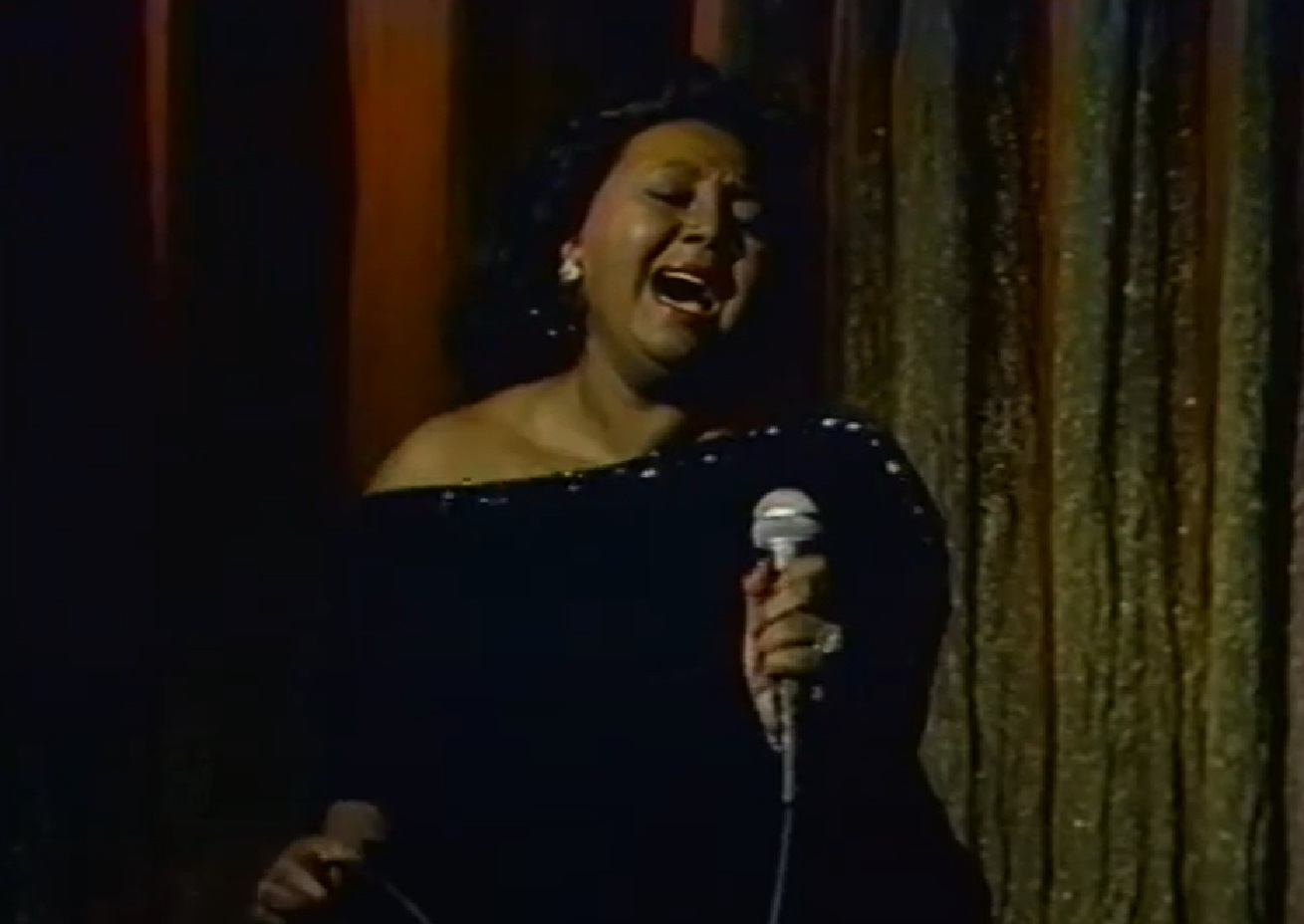 Metromedia, The David Susskind Show - (1958–1987)
Metromedia, The David Susskind Show - (1958–1987)
11. She Wanted To Stand Out
Bryant was on the same billing as superstar Josephine Baker—and Bryant had a problem. If she had to open for Baker, she really wanted to make a real splash. Before the show, Bryant began searching for something that would help audiences remember her. The solution she stumbled upon was completely unexpected.
 Studio Harcourt, Wikimedia Commons
Studio Harcourt, Wikimedia Commons
12. She Did A Home Makeover
Bryant picked up a can of silver radiator paint she had lying around the house and started applying it to her hair. This was just a start. She had some silver fingernail polish, and soon her nails were a perfect match. Of course what she needed now was a gown to bring this all together.
13. She Put It All Together
Bryant landed on a dress designed by Zelda Wynn Valdes, who would go on to design the famous Bunny outfit for Hugh Hefner. Not only did the gown show off the curves that god had given her, but it was also silver. Bryant had her silver hair and fingernails—and the dress completed the ensemble.
Now she just had to worry about what the audience would think.
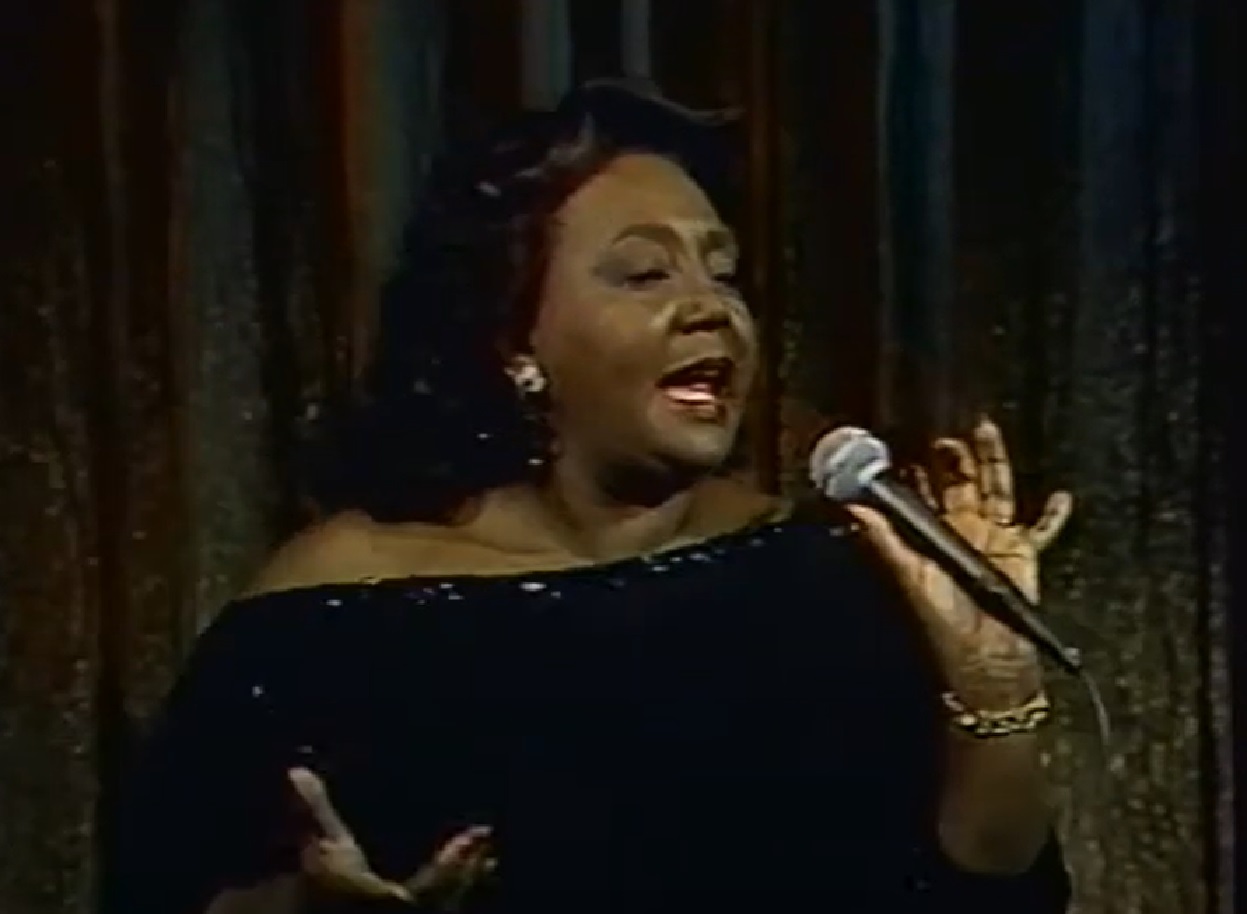 Metromedia, The David Susskind Show - (1958–1987)
Metromedia, The David Susskind Show - (1958–1987)
14. She Was A Vision In Silver
When Bryant stepped out on stage in her silver outfit, everything suddenly stopped. The audience was enraptured with this stunning woman all in silver. Pushing the envelope even further was that her dress was backless, very tight, and exposed a lot of cleavage up front. However, it was her voice that left the best impression possible.
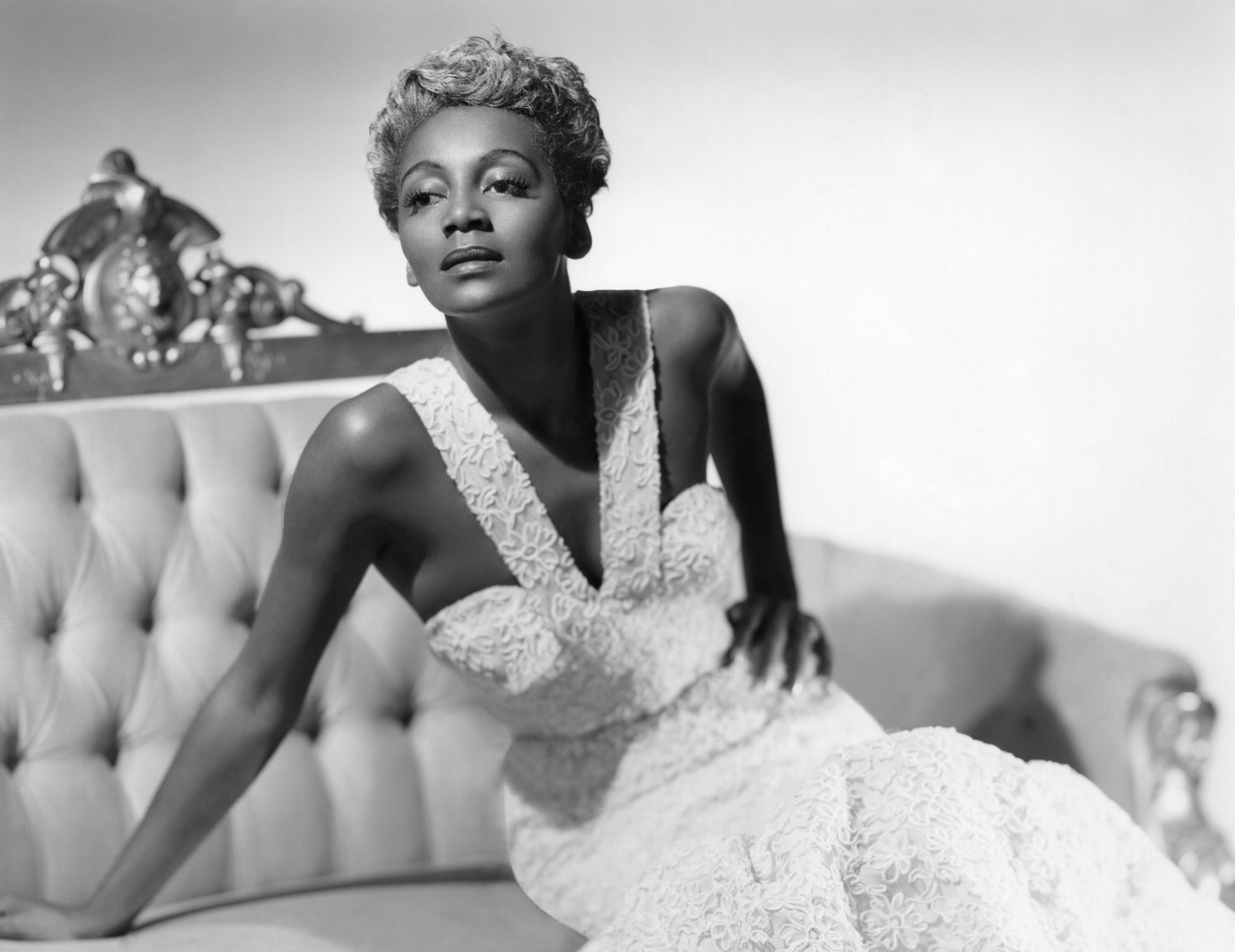 De Carvalho Collection, Getty Images
De Carvalho Collection, Getty Images
15. She Was Clever
Bryant boasted incredible four-octave vocals, and it stunned the audience. Suddenly the silver ensemble made sense. Bryant’s voice was worth its weight in that very precious metal. What Bryant had cleverly done was create a brand. She had the silver hair, and those oh so tight gowns. It was all part of the Joyce Bryant experience.
The media caught the Bryant bug and soon branded her with monikers of their own.
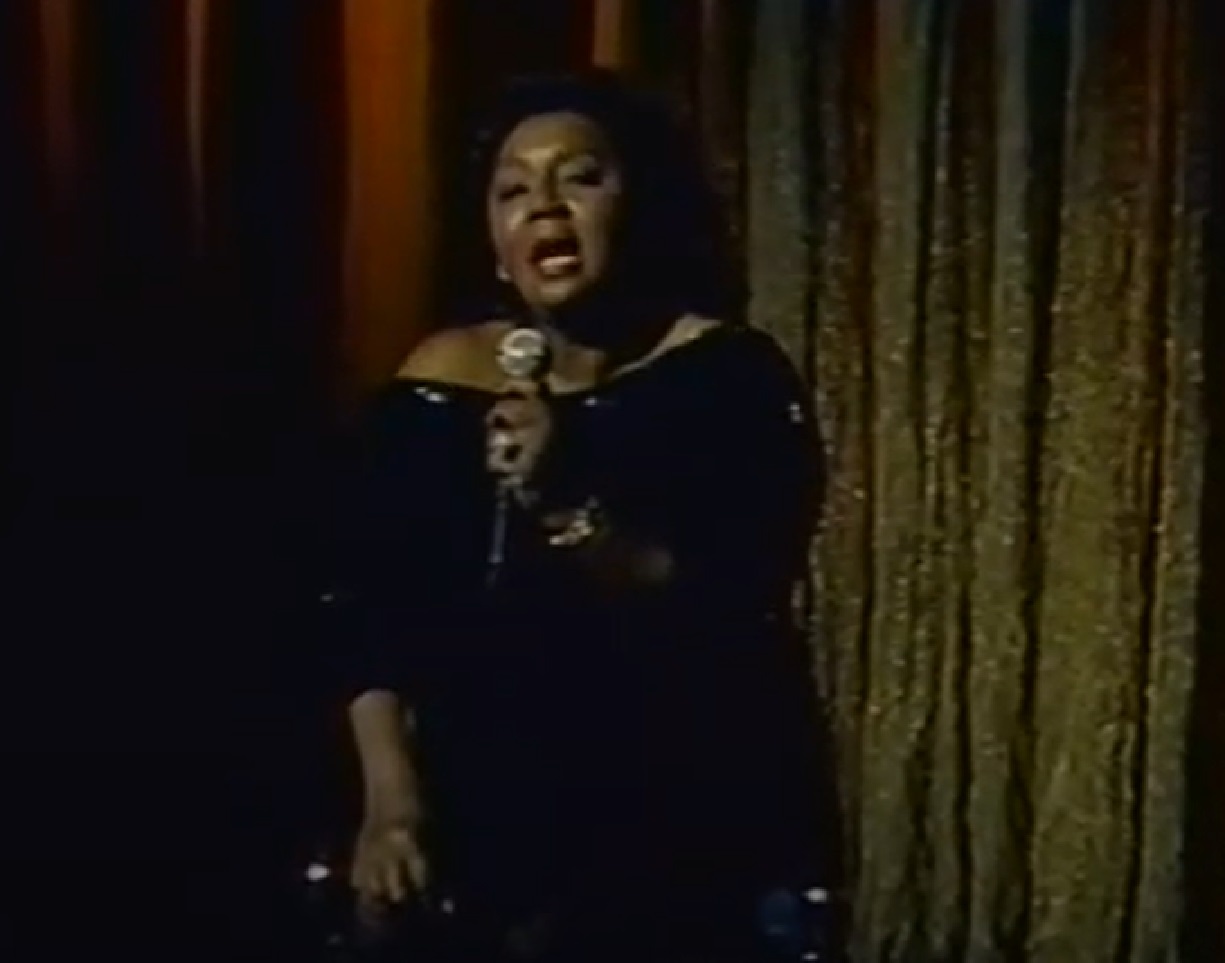 Metromedia, The David Susskind Show - (1958–1987)
Metromedia, The David Susskind Show - (1958–1987)
16. They Called Her Names
Bryant was soon headlining her own shows, and that’s when the nicknames started. There was “The Bronze Bombshell” and the “The Belter Bryant”. There were two reasons why Bryant was a belter. Obviously she could really belt out those tunes. The other reason was because of her physicality. The way she thrashed her arms around, some thought she looked like a boxer.
Clearly, Bryant wasn’t boxing, but there was a surprising reason for this manic arm movement.
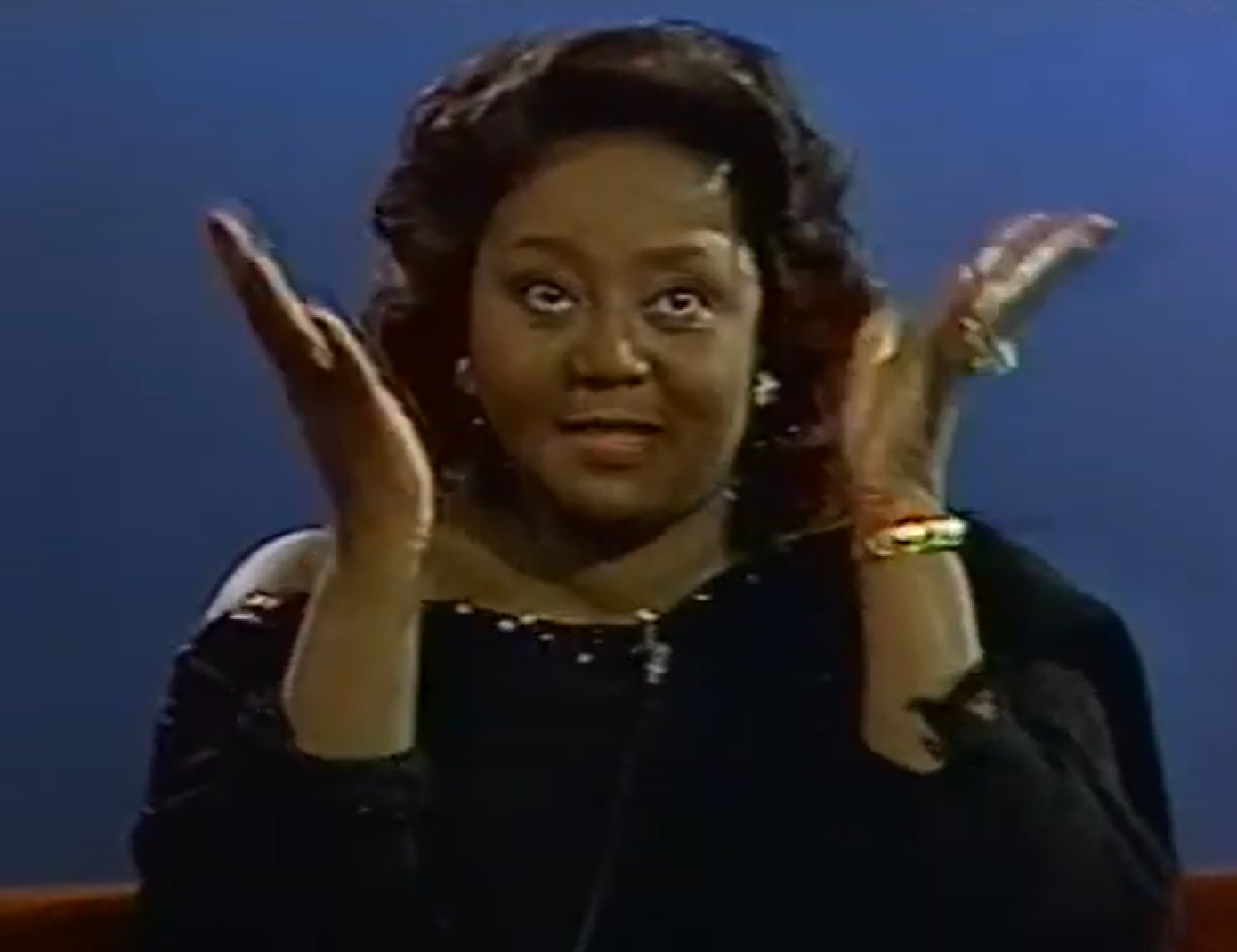 Metromedia, The David Susskind Show - (1958–1987)
Metromedia, The David Susskind Show - (1958–1987)
17. They Were Snug
The dresses that Bryant wore were extremely tight, and some say that this is why she punched her arms around when singing. Think about it, there wasn’t much else she could move. Her dresses were so constricting that she could not even sit down. And forget about walking down stairs. At times she he had to have people carry her on and off stage.
You’d think that fitting into those dresses meant a super strict diet. But that wasn't the case for Bryant.
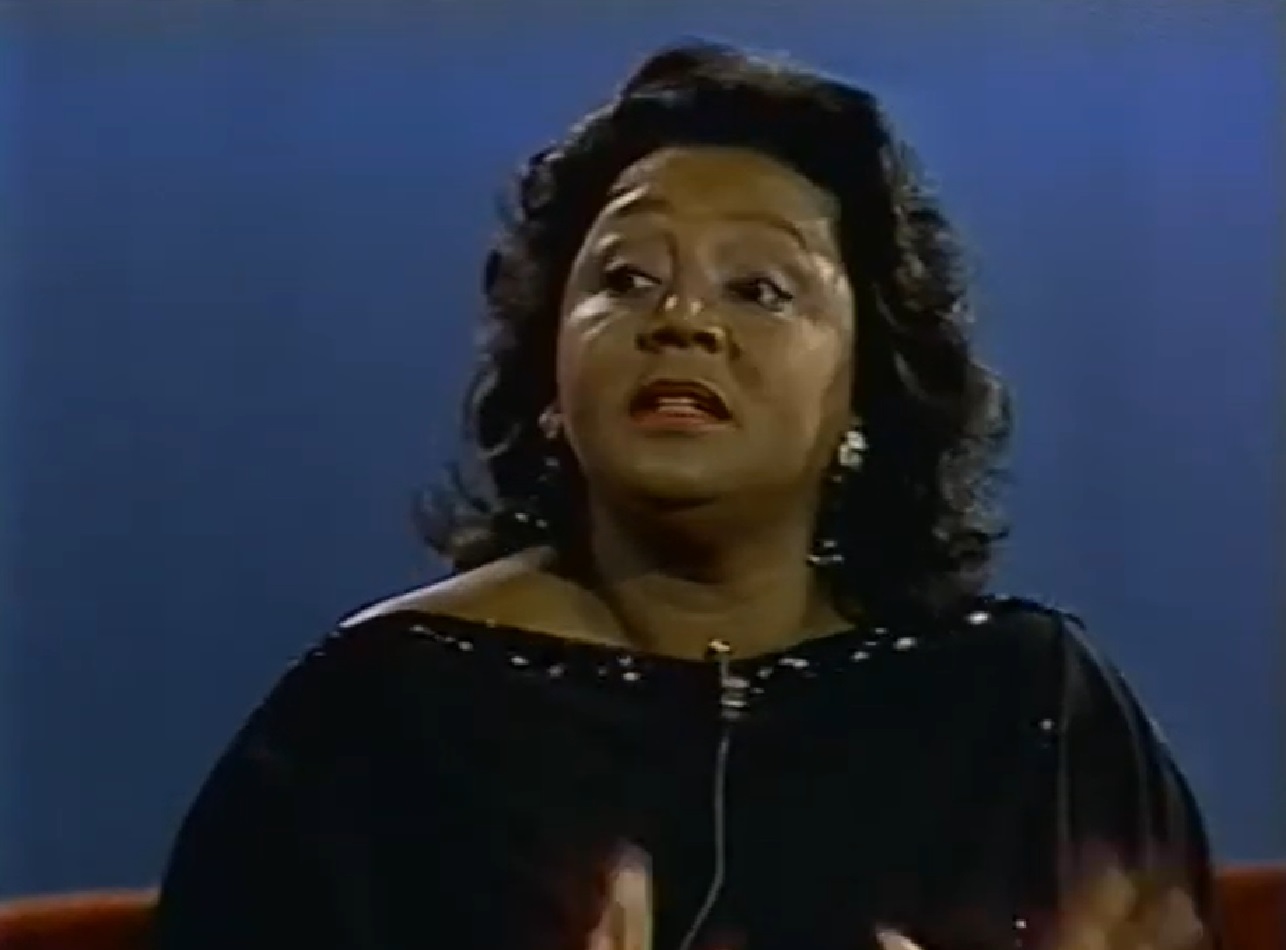 Metromedia, The David Susskind Show - (1958–1987)
Metromedia, The David Susskind Show - (1958–1987)
18. She Lost It
Think about how much energy it took for Bryant to thrash her arms around on stage for an hour or two. Well, someone did the math and figured out something shocking. They say that Bryant lost a full pound for every performance she gave. Forget keto and paleo, Bryant could have marketed the “Belter Diet”.
Bryant may have been on board with her “Belter” nickname, but there was one name that really rubbed her the wrong way.
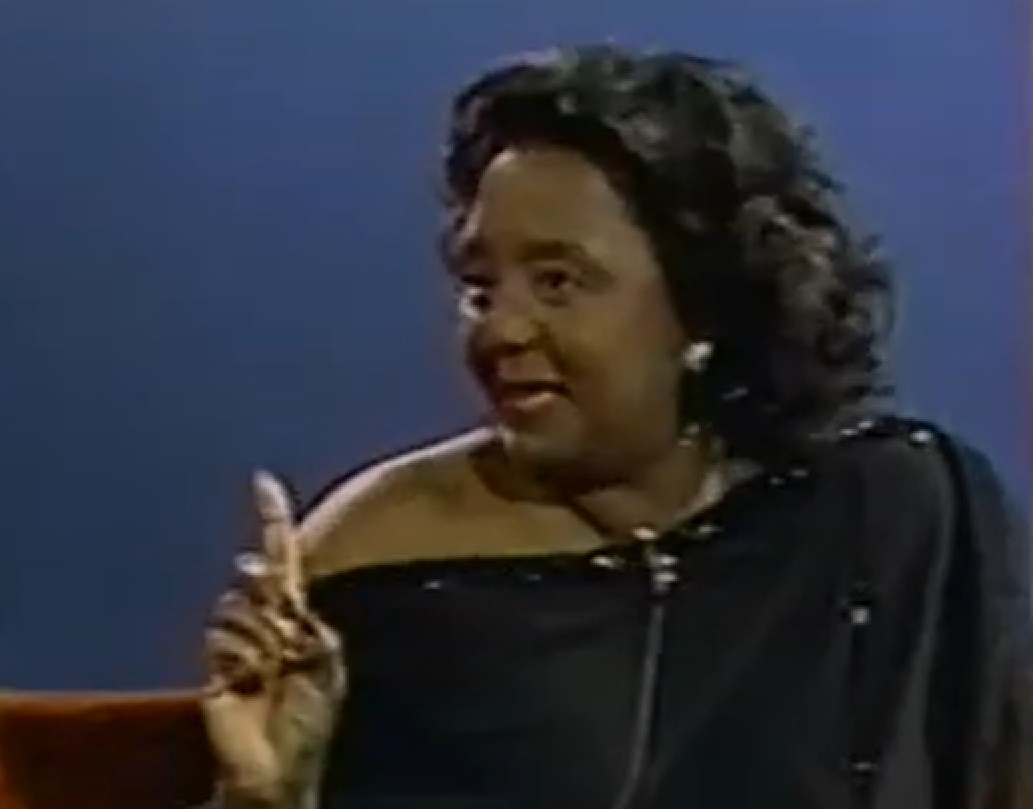 Metromedia, The David Susskind Show - (1958–1987)
Metromedia, The David Susskind Show - (1958–1987)
19. She Didn’t Like the Comparison
Back in those days, the media liked to form comparisons between Black stars and white ones and Bryant ended up being “The Black Marilyn Monroe”. Bryant herself didn't see it. Besides wearing a glamorous dress, Bryant didn’t understand what she and Monroe had in common and resented the comparison.
Reportedly, when asked about the comparison, she said, “Why compare me to her? I was doing my own thing". Bryant certainly was doing her own thing, and it sometimes got her into hot water.
20. She Was Too Much
In 1952, Bryant was ready to start recording. While her renditions of standards got plenty of radio play, she also got into trouble as well. Her most popular standard, Cole Porter’s “Love For Sale," actually received a radio ban. When asked, Bryant blamed the ban on something besides the racy lyrics. She said she had too much “oomph”.
She may have been too much for radio, but there was somewhere where she was very much in demand.
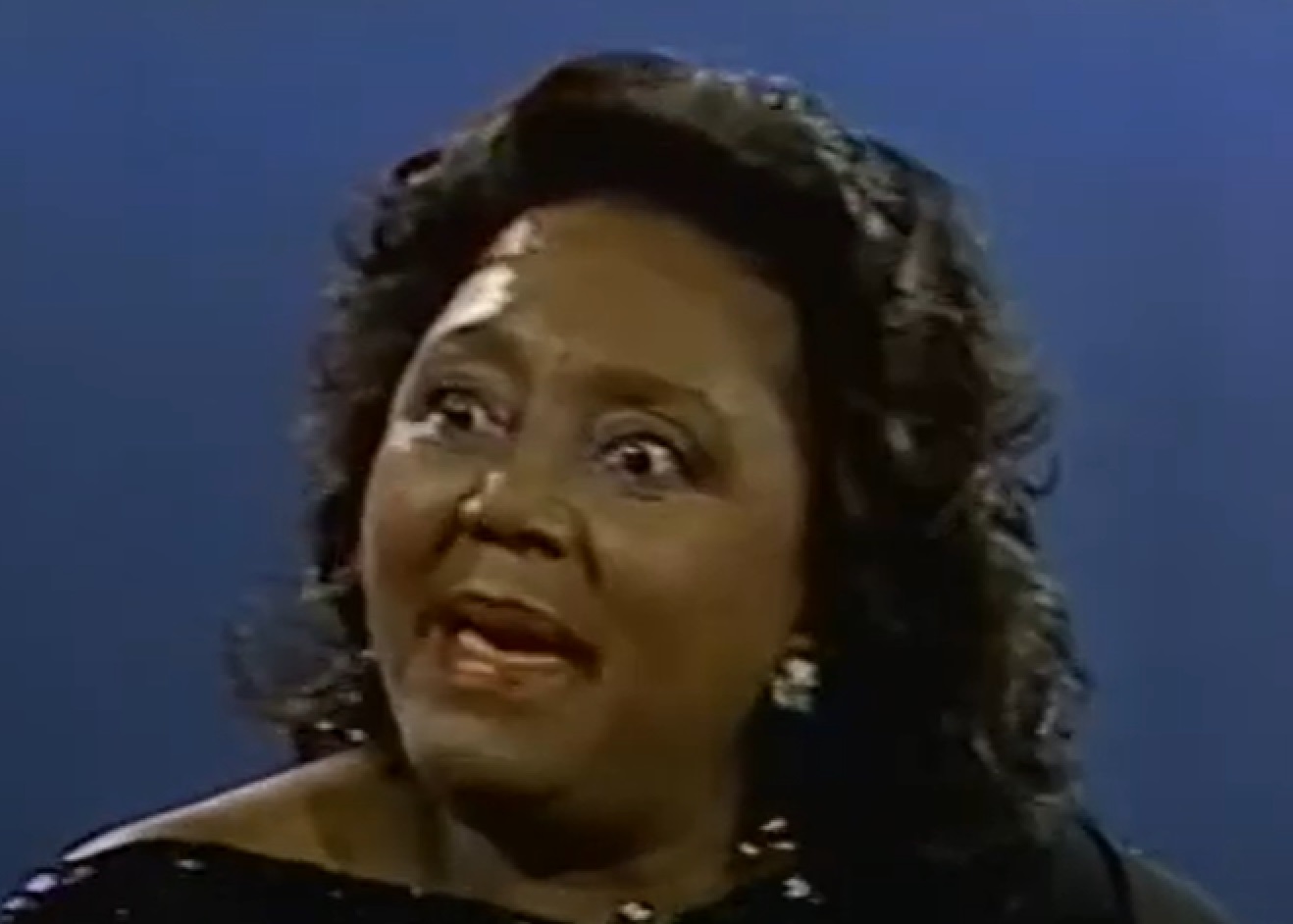 Metromedia, The David Susskind Show - (1958–1987)
Metromedia, The David Susskind Show - (1958–1987)
21. She Was Pleasantly Surprised
The Casino Royal in Washington DC invited Bryant to be one of its first Black performers. She hesitated as the place was pretty much white only. She did take the job and what she saw at the club shocked her. To her surprise, many of the club’s patrons were Black and she was happy to see these Black patrons get the polite treatment they deserved.
Things were changing in America, but sadly that wasn’t true for every part.
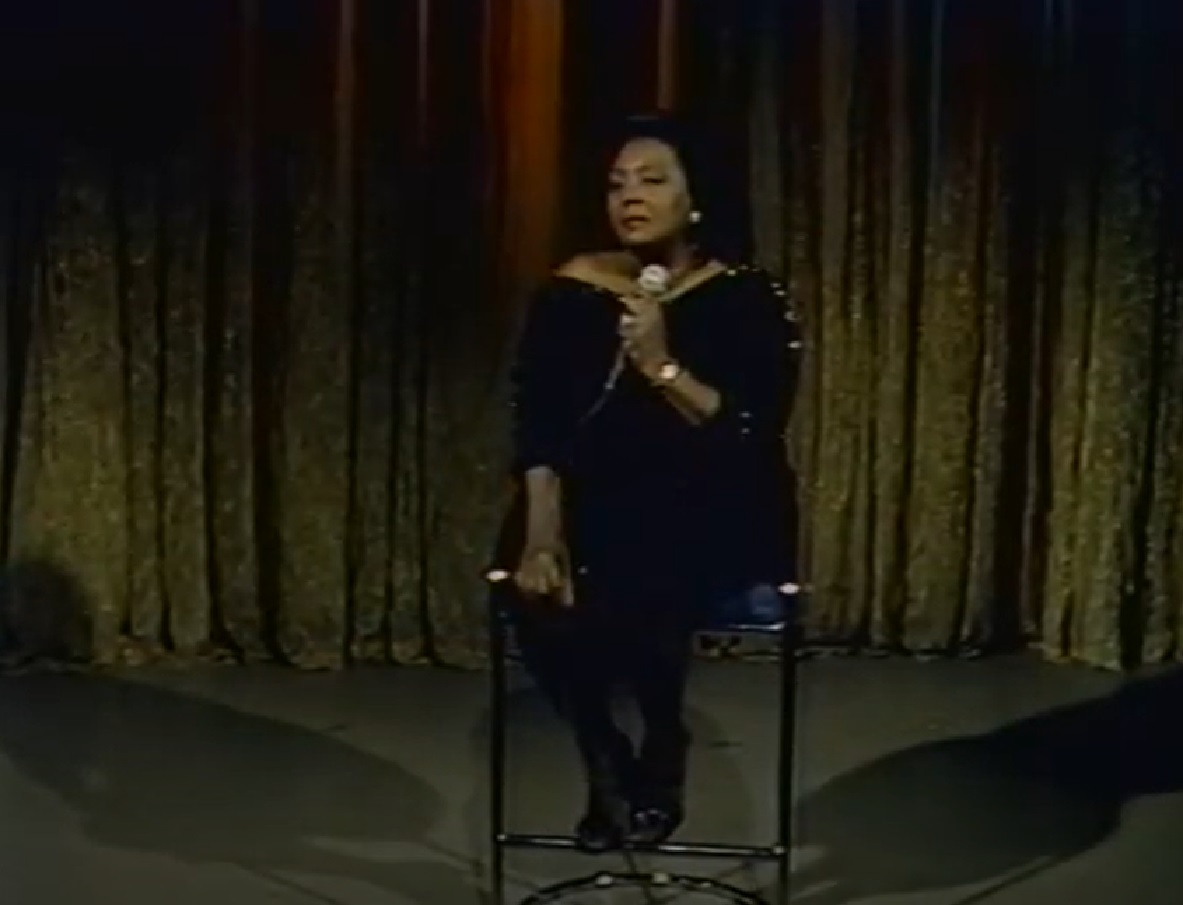 Metromedia, The David Susskind Show - (1958–1987)
Metromedia, The David Susskind Show - (1958–1987)
22. She Received An Invite
Back in the early 1950s, racial tension was alive and kicking in Florida. Any Black person walking down the street in Miami had to be either a maid or a hotel worker. It was in this environment that Bryant received a stunning invitation. They wanted her to be the first Black performer at the Hotel Algiers.
This gig had danger written all over it.
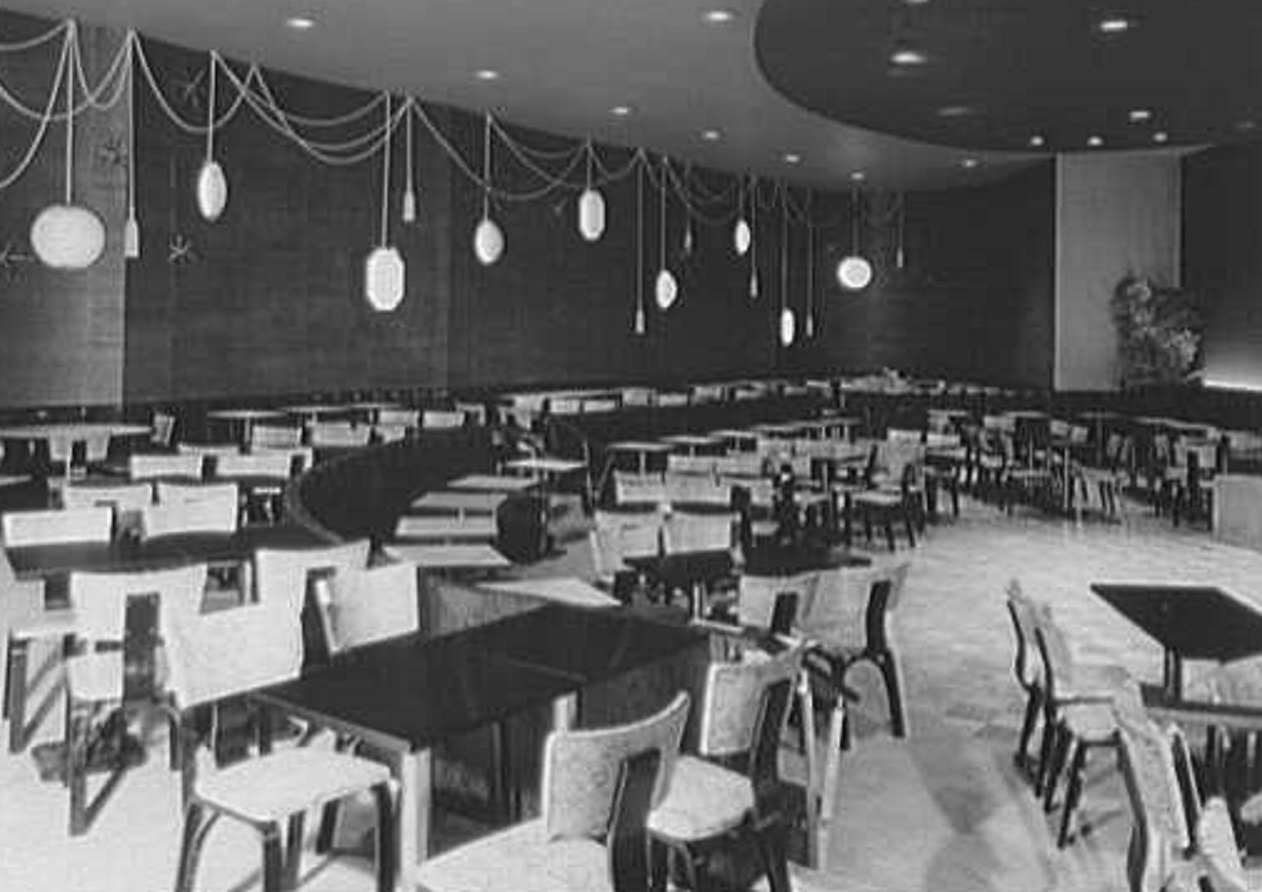 Library of Congress, getarchive.net
Library of Congress, getarchive.net
23. She Was The First
Up until 1952, no Black entertainer had ever performed in a single Miami Beach hotel. So, when they hired Bryant, the Hotel Algiers was really taking a risk. And let’s not forget about the risk for Bryant as well. Luckily, she had this large luxury hotel to support her. As it turned out, they didn’t have her back at all.
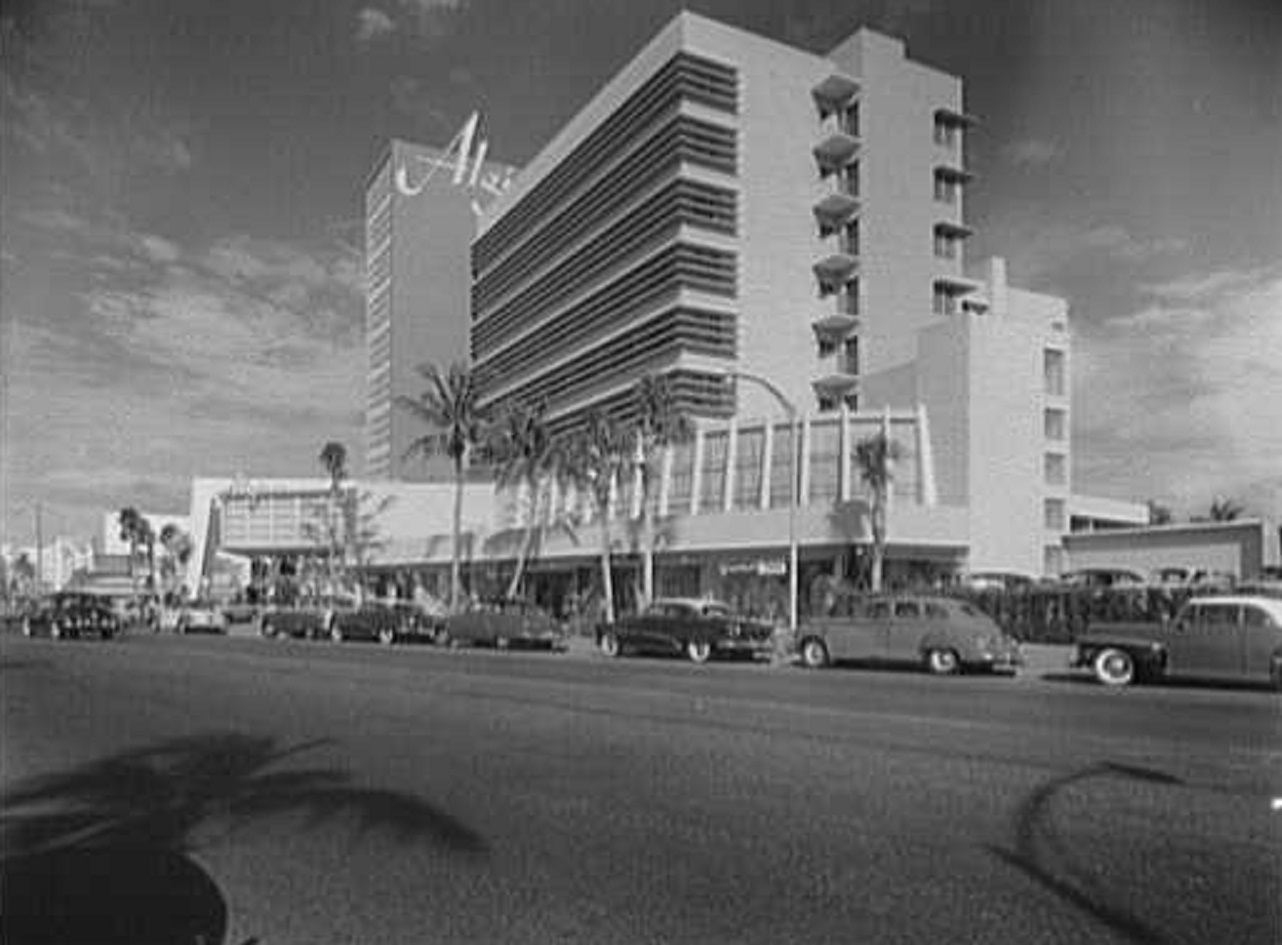 Library of Congress, getarchive.net
Library of Congress, getarchive.net
24. She Couldn’t Stay
Even though Bryant was singing at the Hotel Algiers, she had to find another place to stay. It was okay for a Black woman to be on their stage, but not okay for her to sleep in one of their beds. Not only that, they didn’t even want her to have her picture taken outside the whites only establishment.
Bryant’s treatment in Florida then went from rude to terrifying.
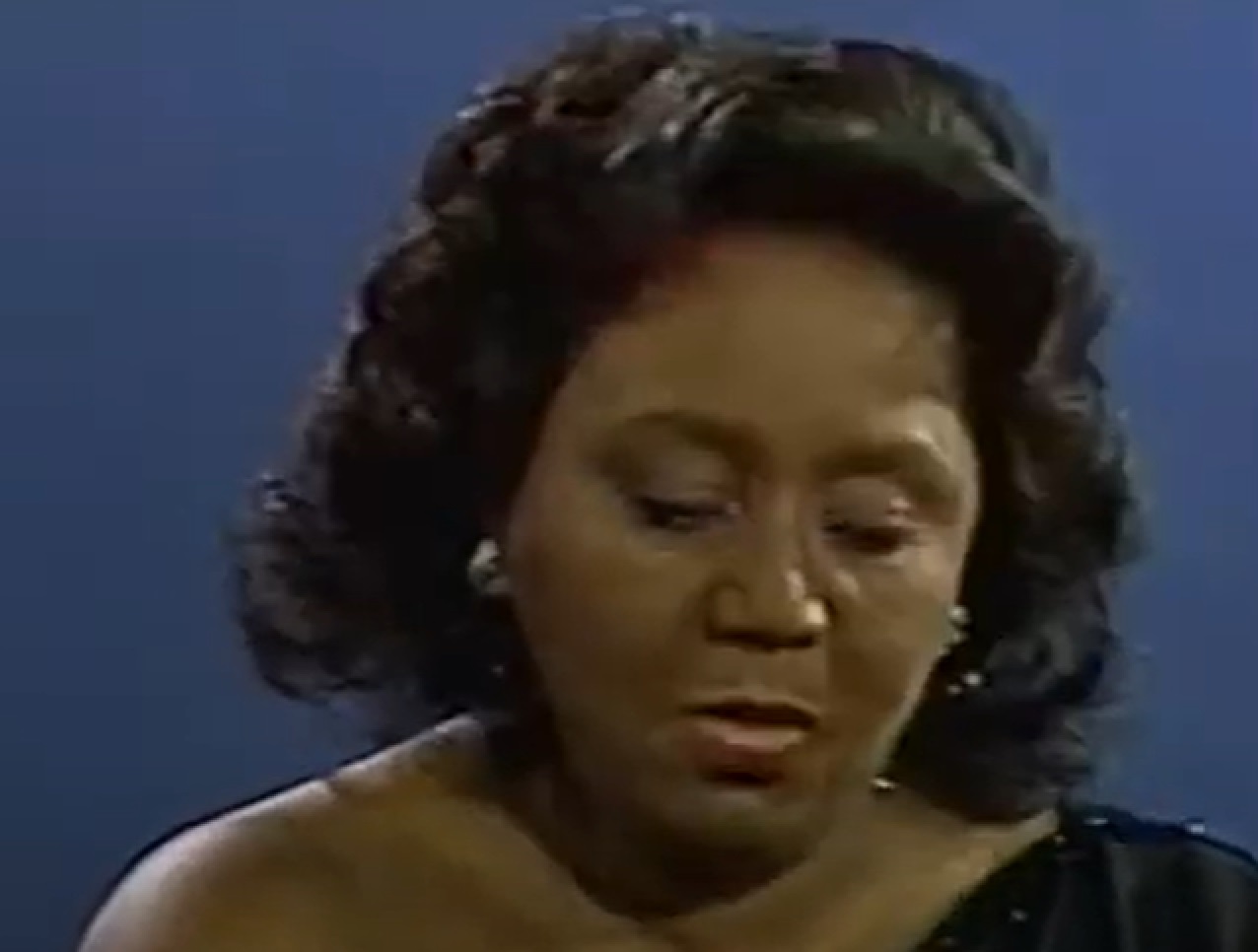 Metromedia, The David Susskind Show - (1958–1987)
Metromedia, The David Susskind Show - (1958–1987)
25. They Sent Her A Warning
Between the day she booked the Hotel Algiers show and when she performed it, there was a frightening display. Someone had created an effigy of Bryant, and then cruelly burnt it. Most assumed this was the handiwork of a prejudiced group, who were sending her a clear and terrifying warning.
Bryant had to make a decision. Break the color barrier in Miami or back down to these frightening people.
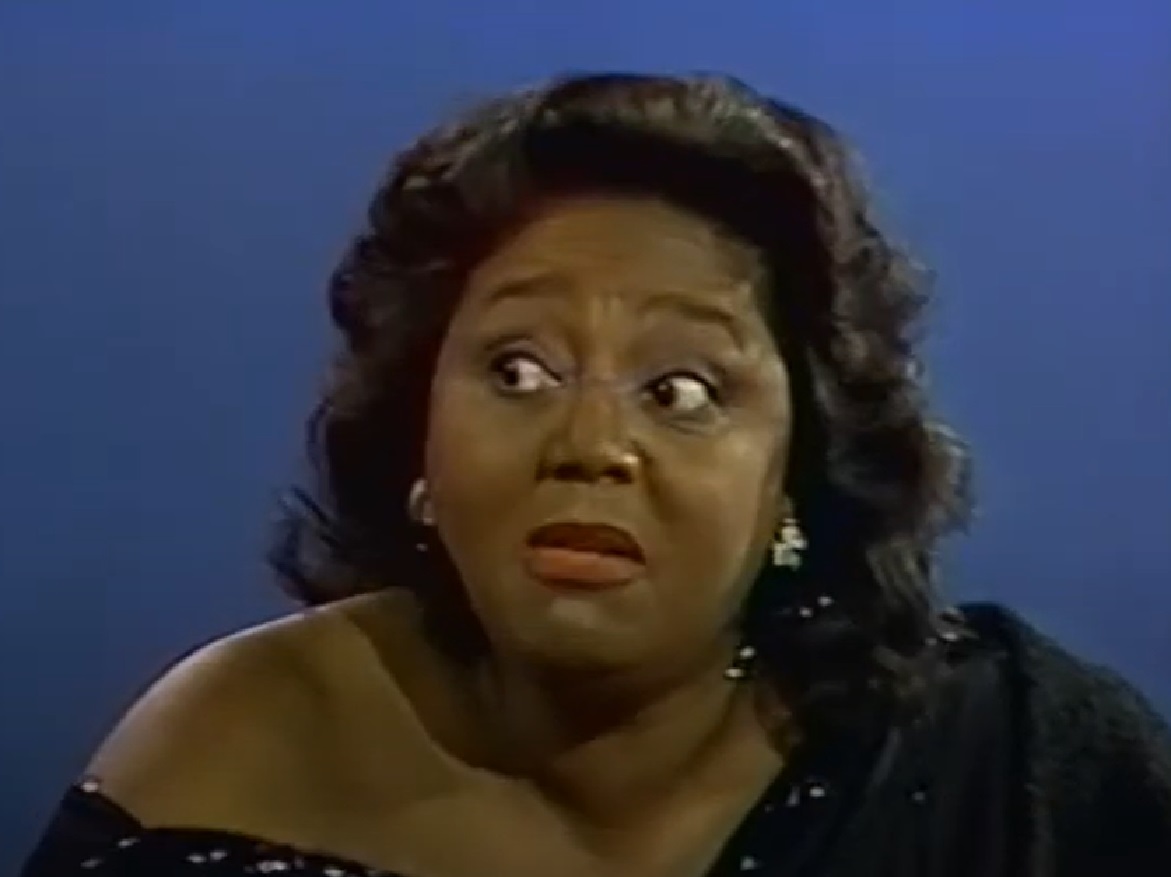 Metromedia, The David Susskind Show - (1958–1987)
Metromedia, The David Susskind Show - (1958–1987)
26. She Paved The Way
There was no way that Bryant was going to let people scare her. She proudly took the stage at the Hotel Algiers, and the audience there loved her. From this one performance, she started doing regular gigs in Miami, which paved the way for other Black performers who came after. Bryant had beat the haters, but there were more out there.
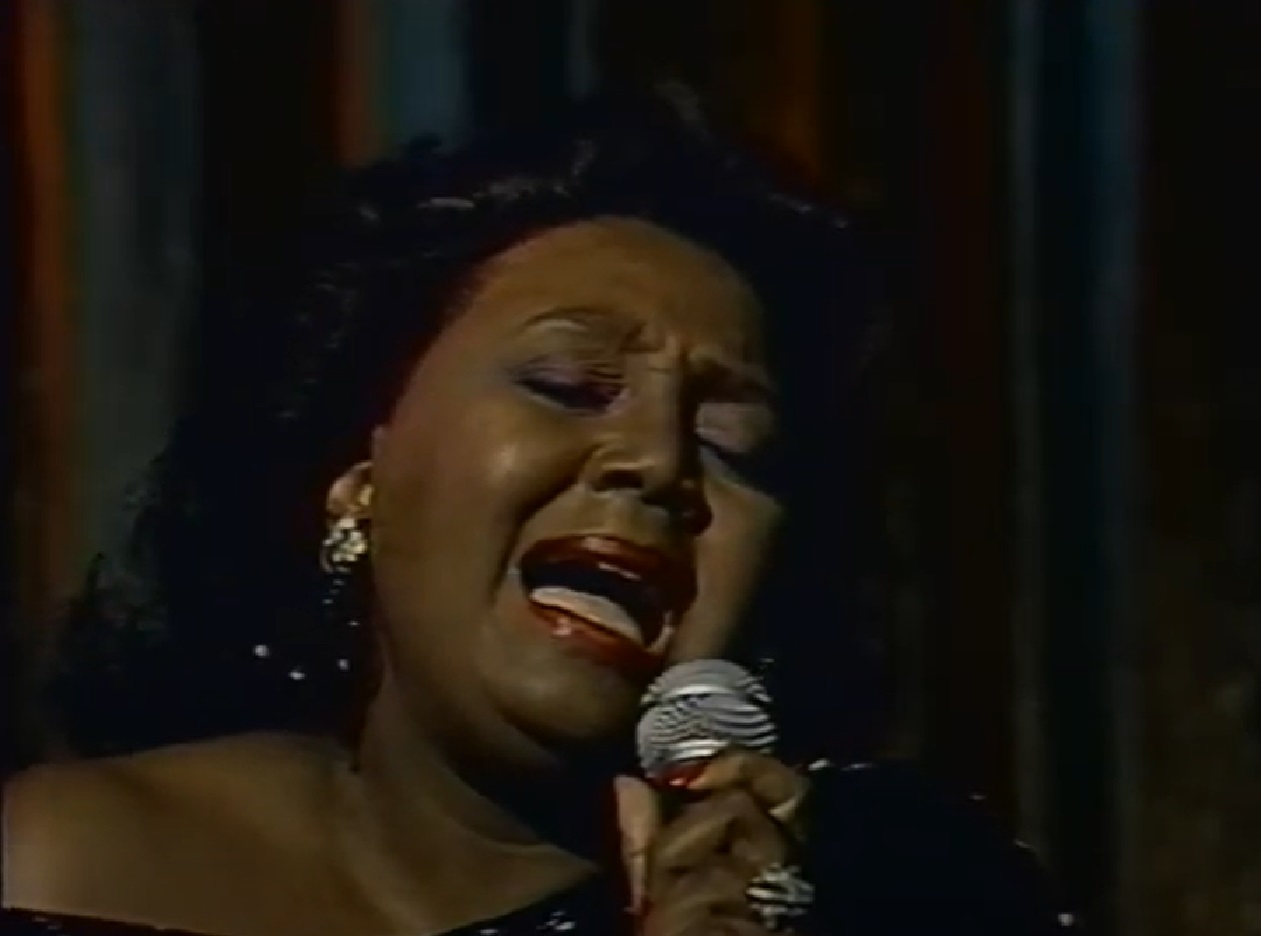 Metromedia, The David Susskind Show - (1958–1987)
Metromedia, The David Susskind Show - (1958–1987)
27. It Was A Family Show
A high point in many singers’ careers is a TV appearance, and back in the 1950s this often meant The Ed Sullivan Show. Sullivan was quite conservative, and when he saw what Bryant was going to wear he suddenly had an opinion, and it was a strange one. He wanted her to top off her elegant gown with a bandana.
This strange request angered Bryant to her core, and she was ready to come out fighting.
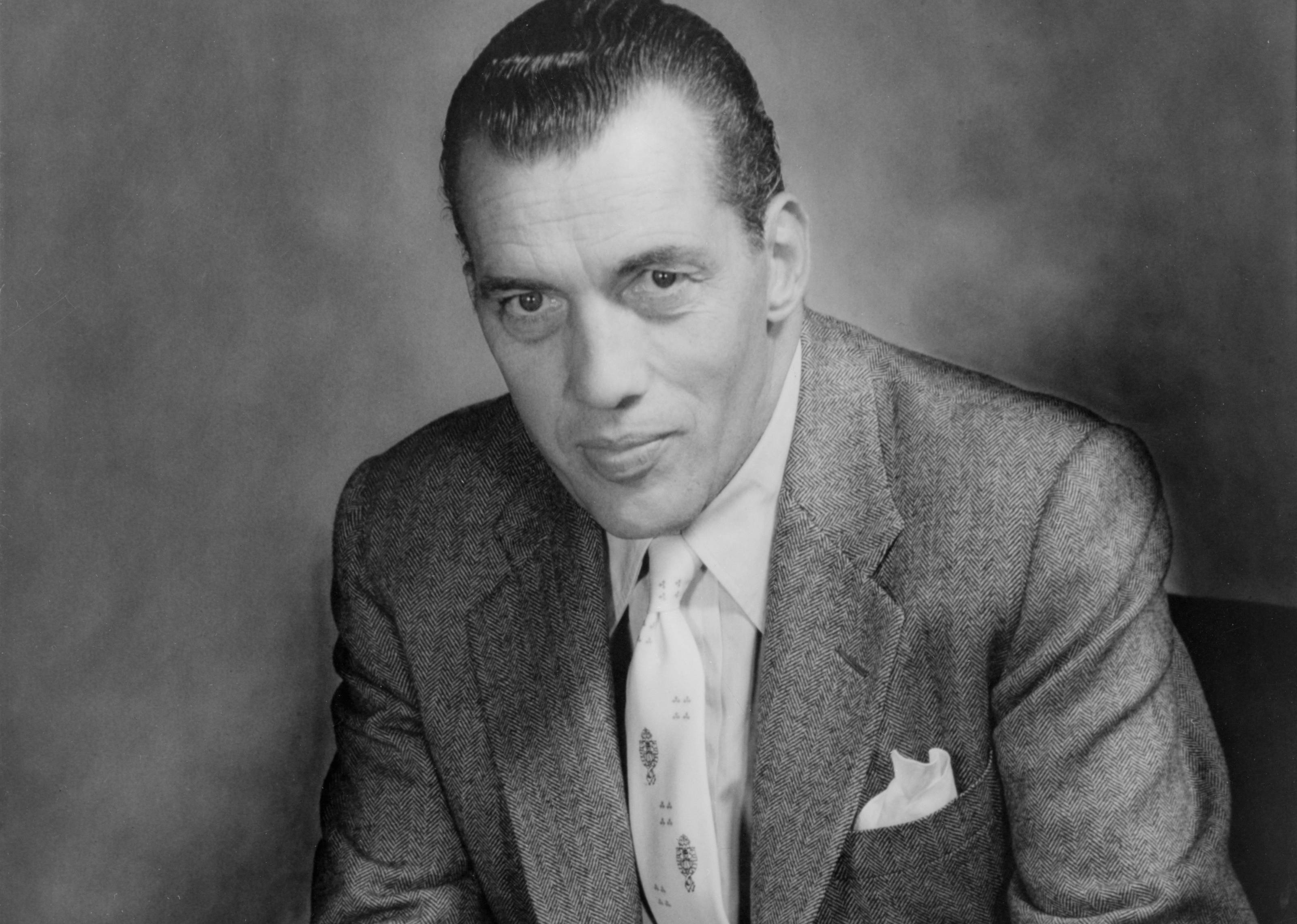 Maurice Carnes, Wikimedia Commons
Maurice Carnes, Wikimedia Commons
28. They Argued Long and Loud
Apparently the argument between Bryant and Sullivan was loud and four hours long. But what was the deal with the bandana anyway? Social commentators later said that putting a bandana on Bryant’s head was Sullivan’s way of making sure she understood her place in society. Bryant bravely refused to let anyone tell her what “her place” was.
Bryant’s fans were eating up how brave she was. Now it was time for the rest of America to soak up the Bryant experience.
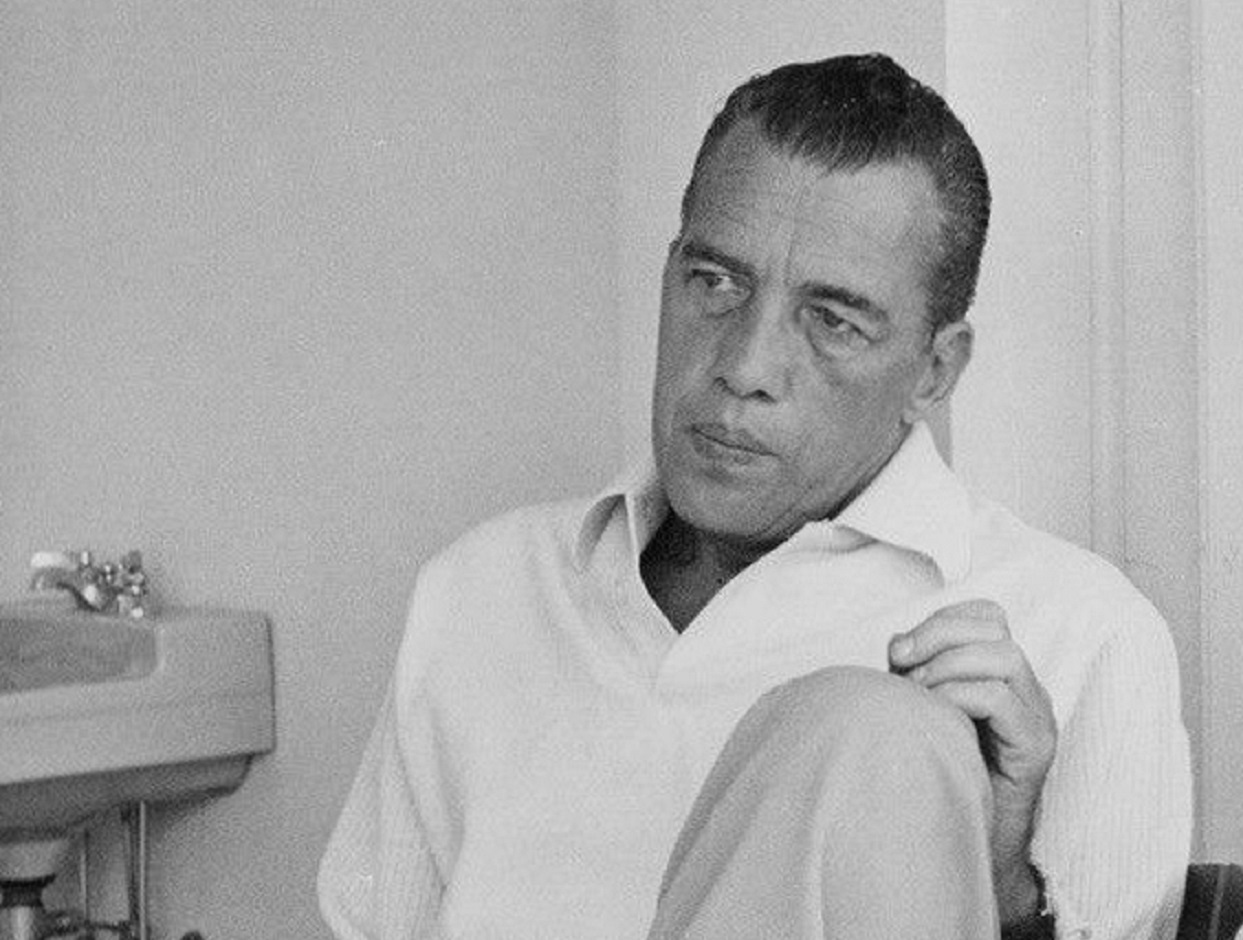 Gilloon Photo Agency, Wikimedia Commons
Gilloon Photo Agency, Wikimedia Commons
29. She Took Six Whole Pages
Life Magazine saw the effect that Bryant was having on her fans and decided to share the love. They devoted six pages of one issue to some rather scandalous photos of Bryant. The word was out that Bryant was a hot commodity, and this opened her up to a new class of friend. She was soon hanging out with A-list celebrities like Harry Belafonte and Sammy Davis Jr.
Bryant was living the dream, but in reality, she was experiencing something closer to a nightmare.
30. She Had A Crisis
It was the 1950s and Bryant was now taking home a tidy sum of $3,500 for a single performance. She’d broken down several color barriers in the entertainment industry, and yet she was not happy. For one thing, that radiator paint had done some weird and permanent damage to her hair. But there was something much more serious than that.
Bryant was having a moral crisis, and she was desperate to overcome it.
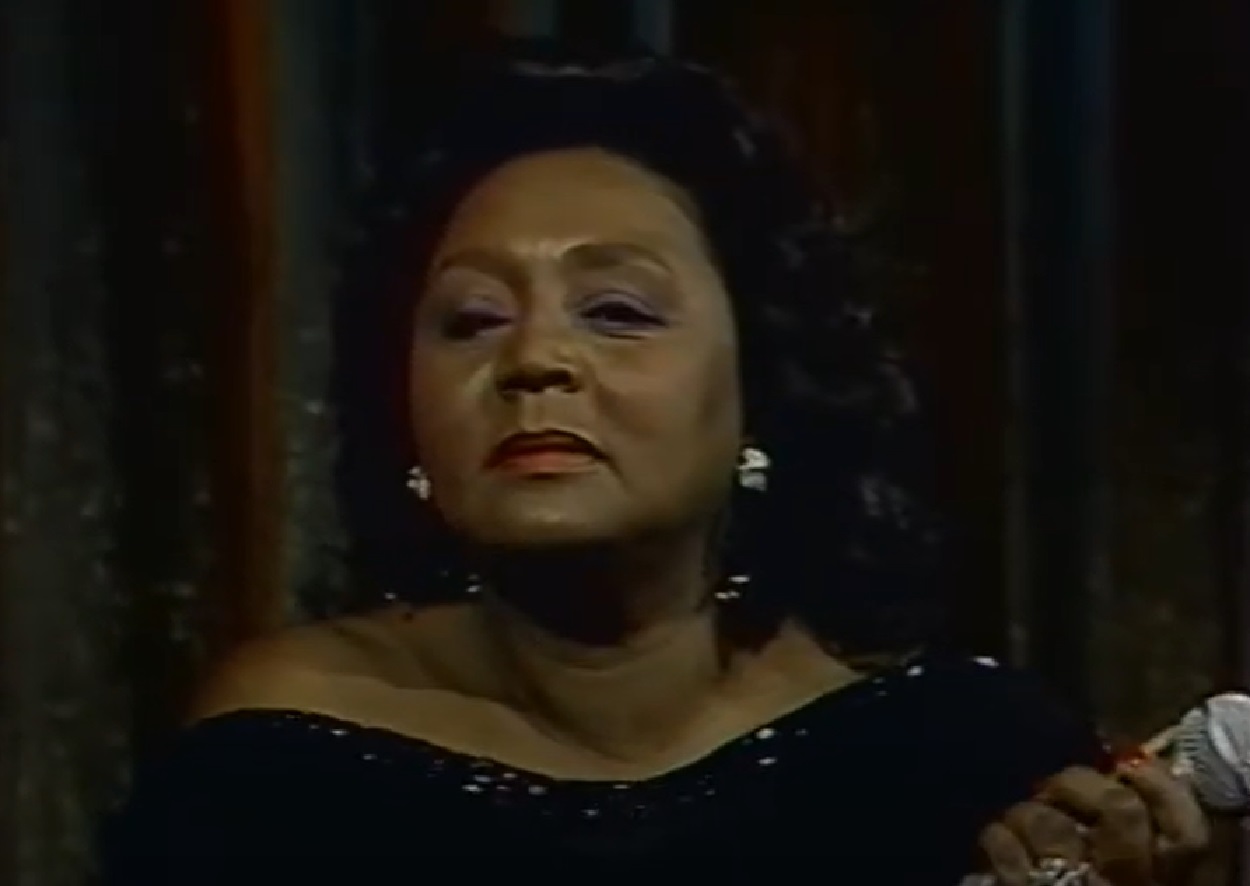 Metromedia, The David Susskind Show - (1958–1987)
Metromedia, The David Susskind Show - (1958–1987)
31. She Couldn’t Sing
One thing that led to her crisis was the treatment she got from those she should have been able to trust. When her voice gave out due to a grueling schedule, her manager called for a doctor. The doctor recommended spraying her throat with a dangerous and illicit drug and warned Bryant’s manager that she would likely become addicted to it.
Her manager’s cruel response was unbelievable.
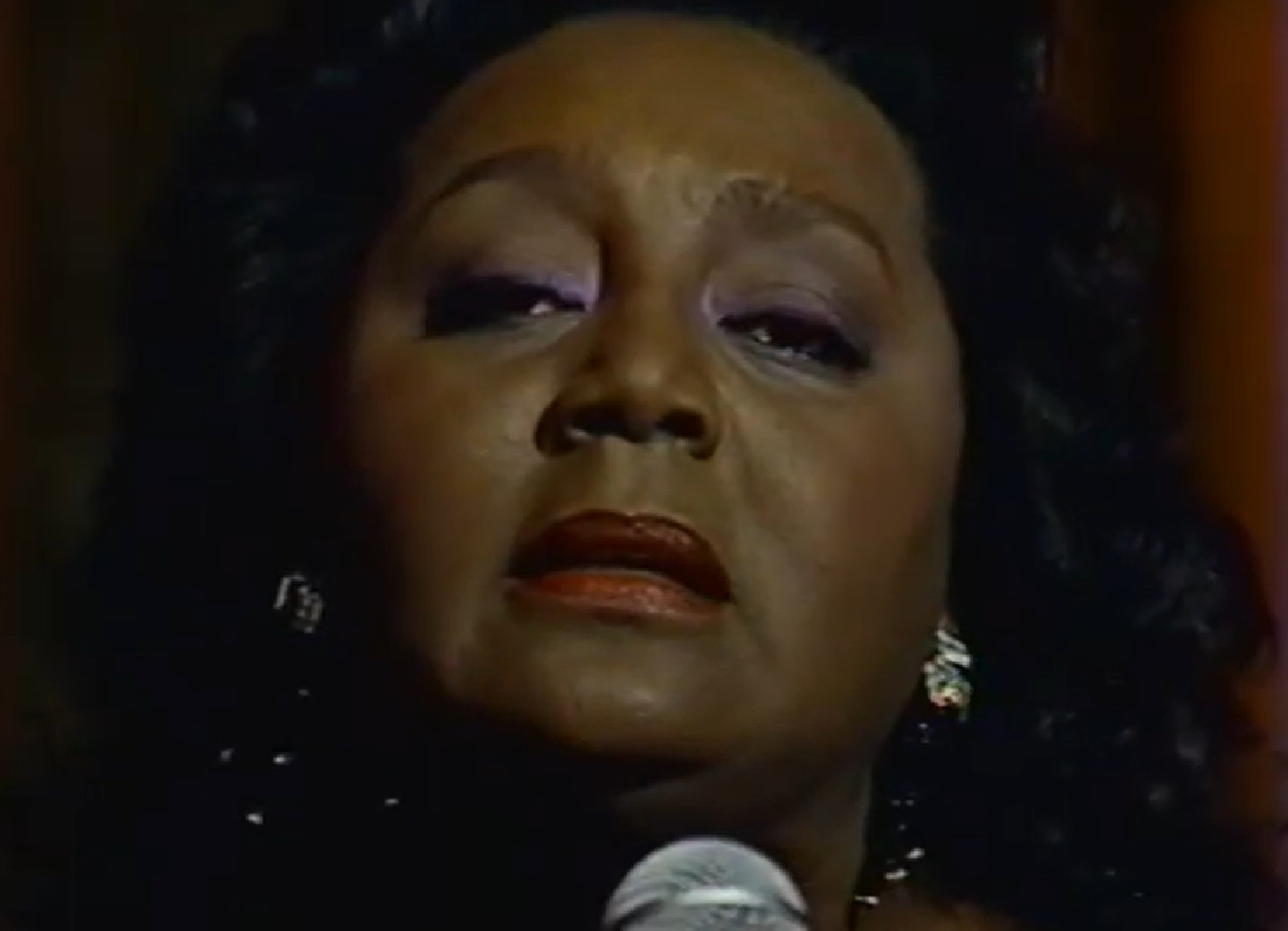 Metromedia, The David Susskind Show - (1958–1987)
Metromedia, The David Susskind Show - (1958–1987)
32. She Had No Backup
Bryant heard her manager tell the doctor that he didn’t care what he used as long as it got Bryant back on stage. His heartless excuse was that he needed Bryant’s money to pay for his kids’ education. Bryant couldn’t believe her ears. This was from a man who should have been protecting her. It was time for Bryant to stand up against this horrible man.
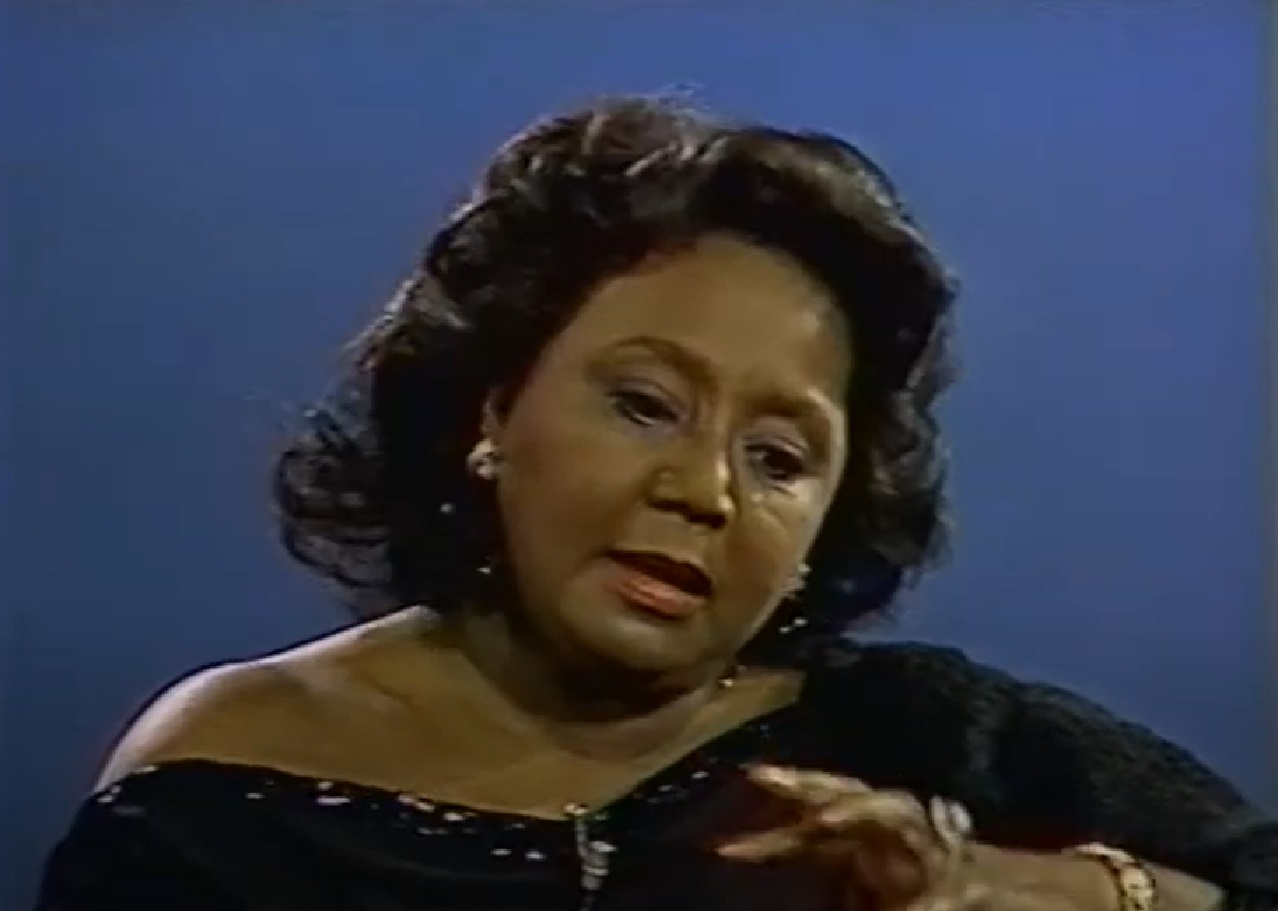 Metromedia, The David Susskind Show - (1958–1987)
Metromedia, The David Susskind Show - (1958–1987)
33. She Did It Anyway
Bryant flatly refused to take the illicit drug, but as a professional she had to get on stage anyway. She later said that this performance wasn’t one of her best. She could barely sing, but joked that the audience could see it more as a fashion show. The cruel incident with her manager had opened her eyes, and she didn’t like what she saw.
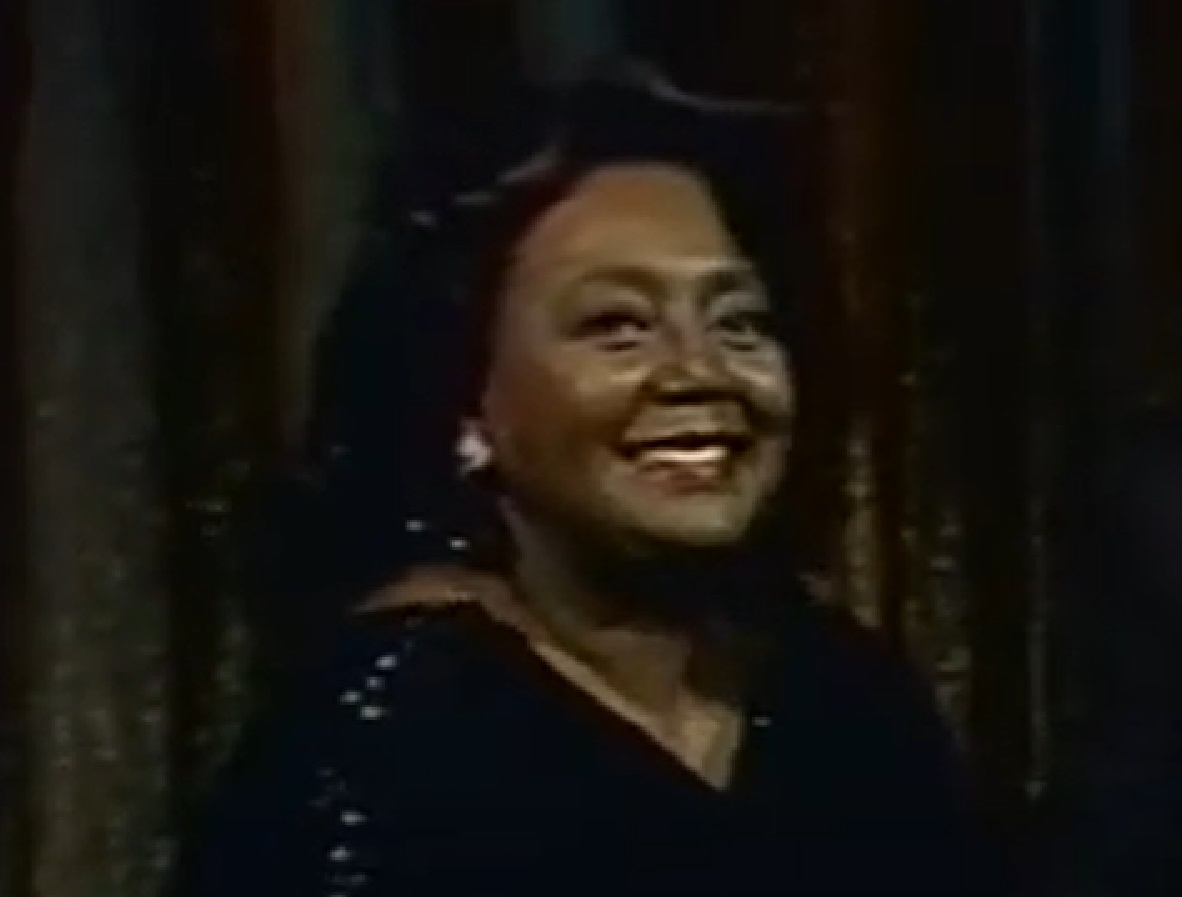 Metromedia, The David Susskind Show - (1958–1987)
Metromedia, The David Susskind Show - (1958–1987)
34. She Took A Good Long Look
Remember, Bryant’s parents had raised her very conservatively, and that had stayed with her. She looked around at what she was doing. She was strutting around in revealing outfits while men in the audience leered at her. She knew this was all wrong, but it wasn’t just the male attention that was bothering her. Suddenly, her whole world seemed like a sinful place.
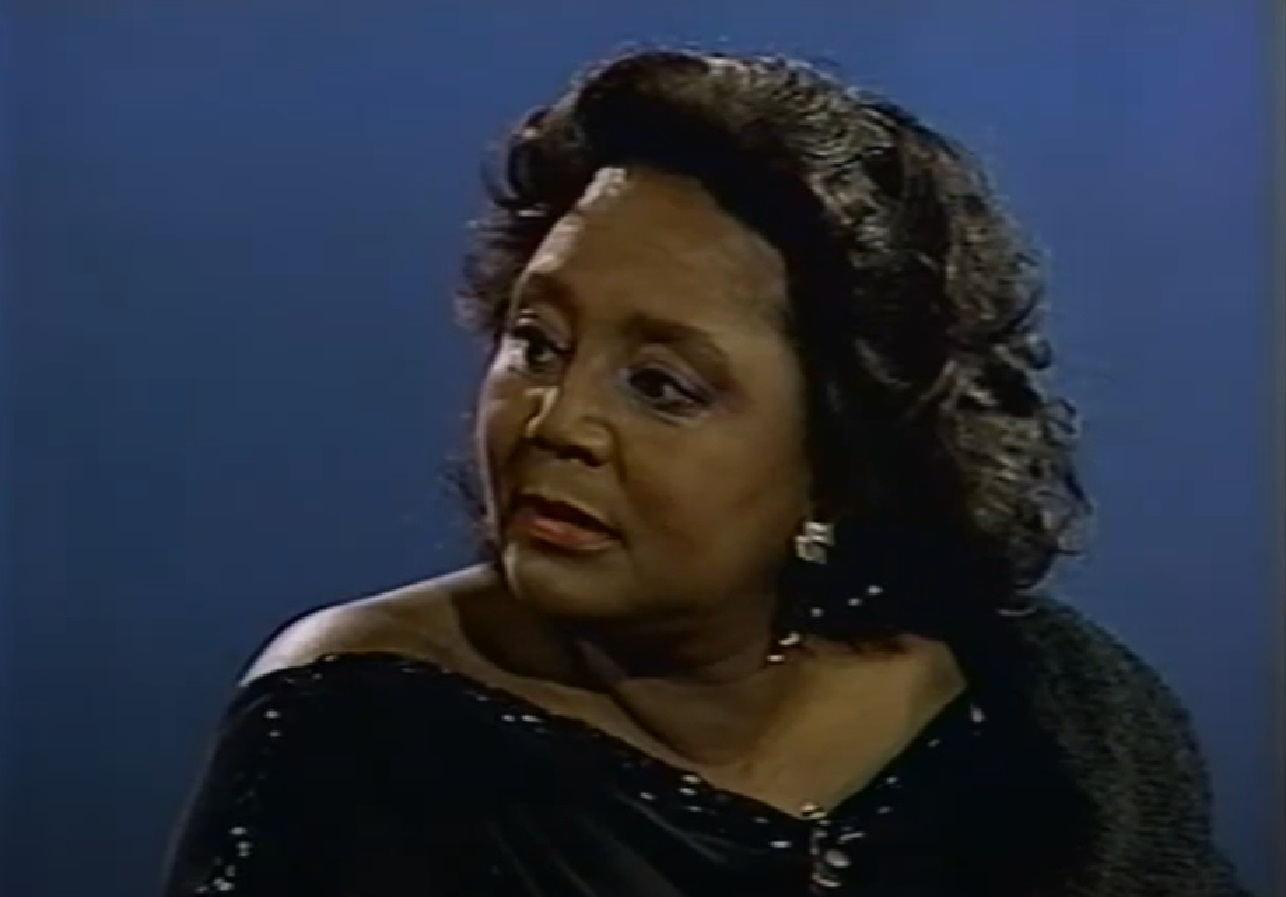 Metromedia, The David Susskind Show - (1958–1987)
Metromedia, The David Susskind Show - (1958–1987)
35. She Lived In A Dangerous World
Bryant lived in the milieu of nightclubs, and that world attracted some very dangerous people. Many of the men in this world belonged to gangs and were part of the drug trade. Bryant stayed as far away from these men as she could, but when they saw her beauty, they couldn’t help but pursue her.
With one man, things got completely out of hand.
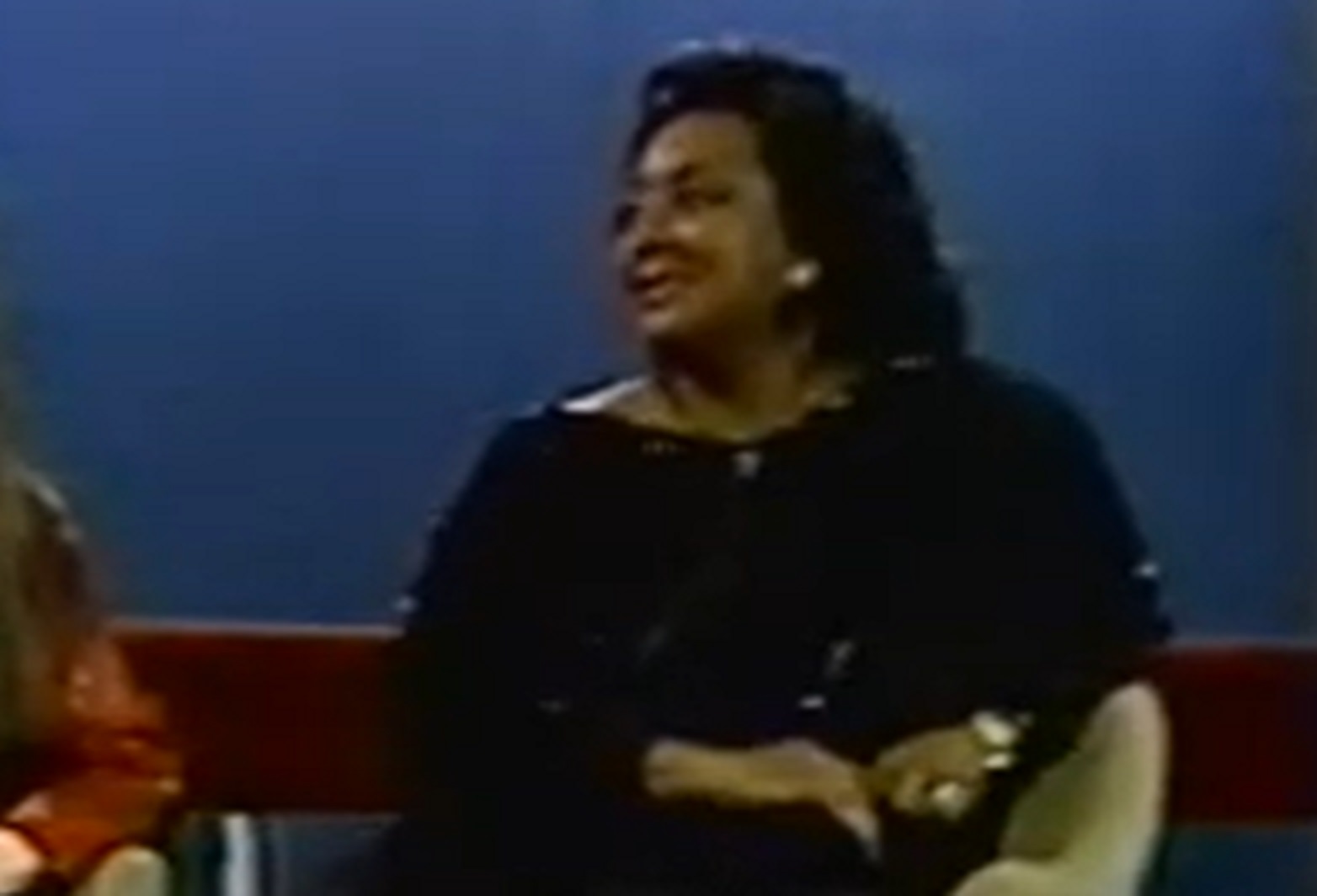 Metromedia, The David Susskind Show - (1958–1987)
Metromedia, The David Susskind Show - (1958–1987)
36. She Was All Alone
Of course, Bryant got her share of amorous attention from men. One man who made advances on her didn’t like it when she rejected him. When she was alone in her dressing room, this man physically brutalized her. This incident was the last straw. Bryant had had it with show business. She was about to shock her fans with a major announcement.
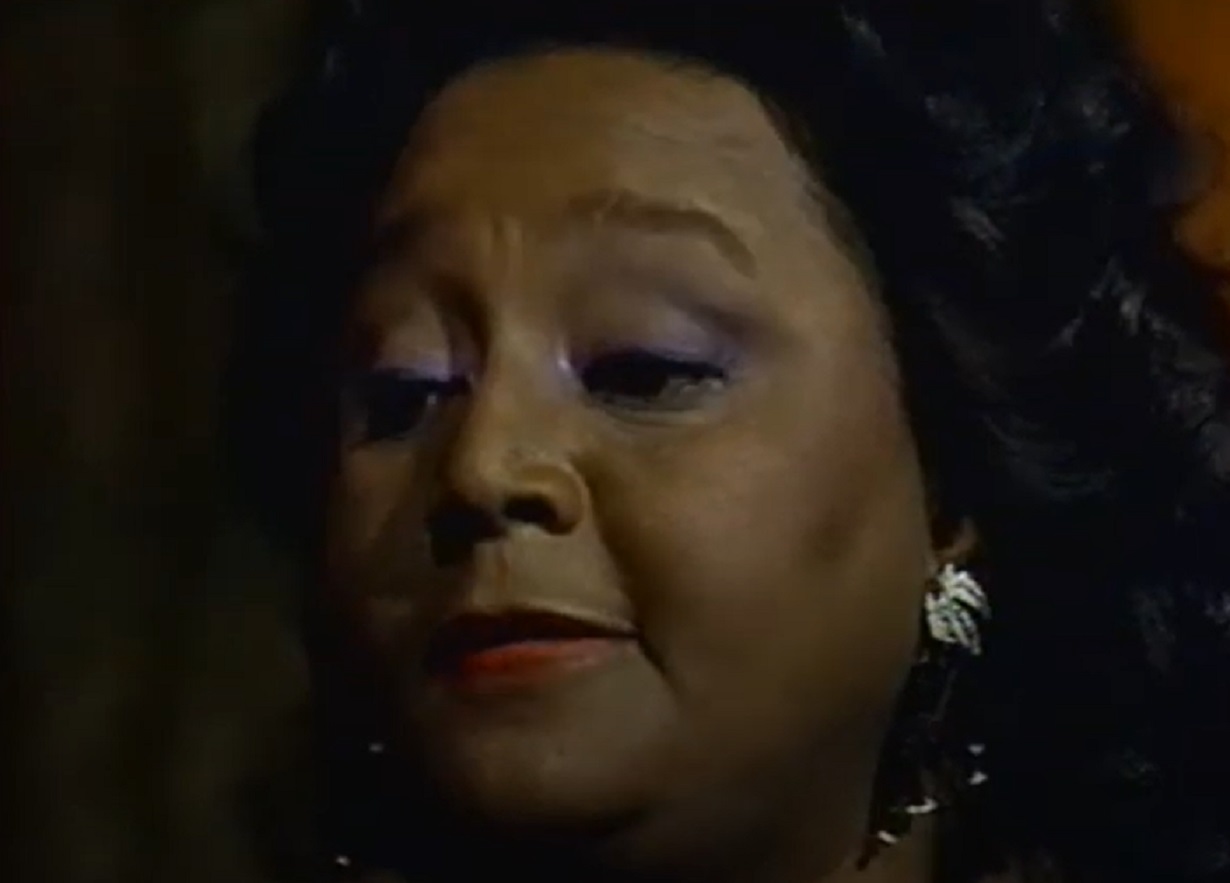 Metromedia, The David Susskind Show - (1958–1987)
Metromedia, The David Susskind Show - (1958–1987)
37. She Was Ready To Quit
Bryant was at the height of her career, and she was ready to call it quits. The media was soon announcing the end of her career, and to outsiders it seemed like pure madness. Ebony magazine’s headline said it all, “The New World of Joyce Bryant: Former Café Singer Gives Up $200,000-a-year Career to Learn to Serve God".
Surely this was just sensationalism meant to sell magazines. Nope, they’d got it exactly right.
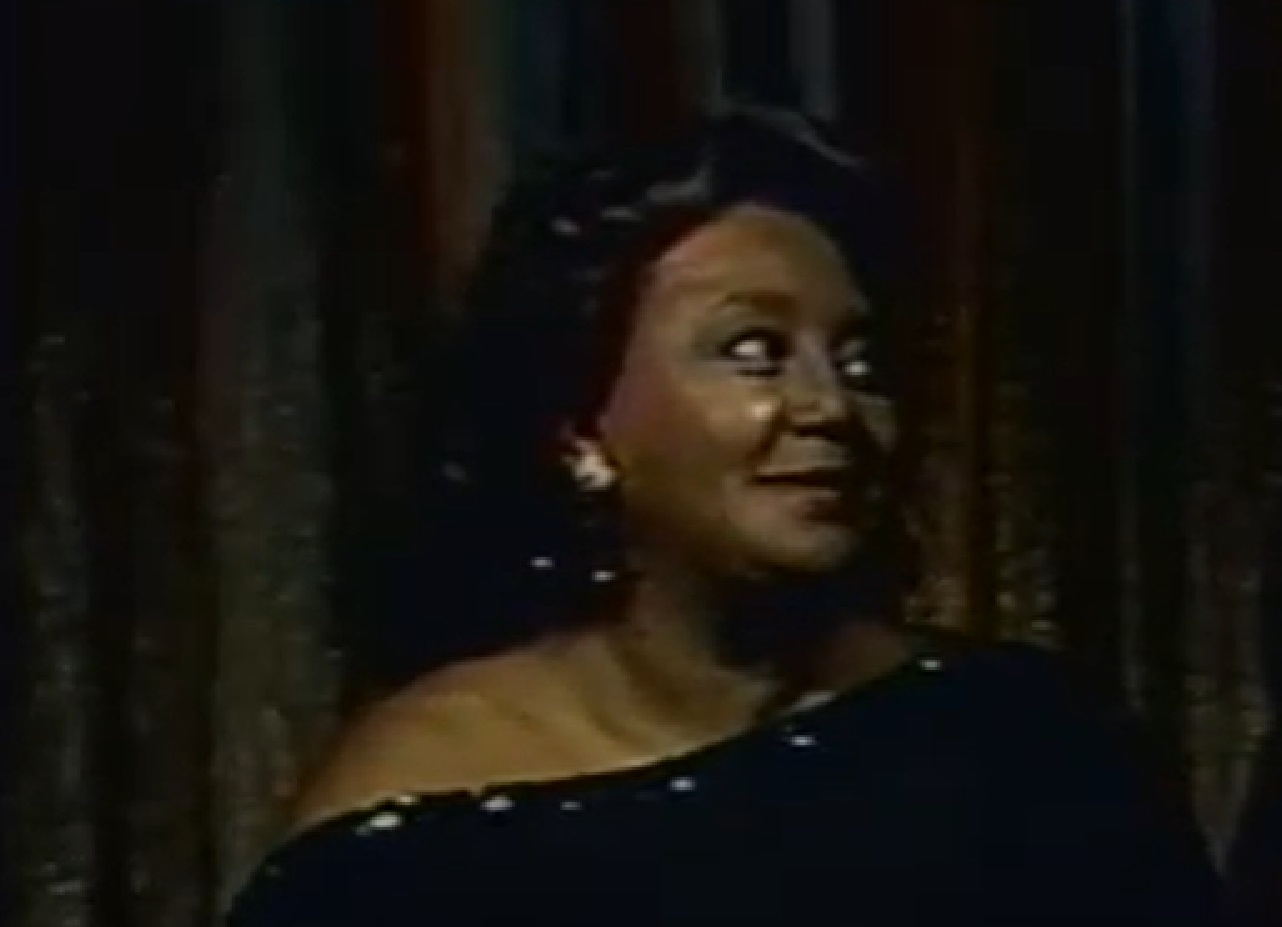 Metromedia, The David Susskind Show - (1958–1987)
Metromedia, The David Susskind Show - (1958–1987)
38. She Got Back To Her Roots
Bryant had never forgotten about the religion she grew up around, so when she put show business behind her, she turned back to the Seventh Day Adventitst church. This didn’t mean she was going to live with her family again. No, Bryant moved to Alabama where, at the age of 28, she enrolled in a Seventh Day Adventist College.
Braynt wasn’t about to lose herself in academia. She was ready to take on the world instead.
 Phillip Pessar, CC-BY-2.0, Wikimedia Commons
Phillip Pessar, CC-BY-2.0, Wikimedia Commons
39. She Wanted To Help
After her studies, Bryant was soon traveling throughout the south, and she didn’t like what she saw. Hospitals were turning people who needed care away just because they were Black. An outraged Bryant took to putting together fundraising events. She raised money to get clothes, food, and medicine for people in need.
Bryant just couldn’t raise enough money for everything she wanted to do, so she turned back to an old habit.
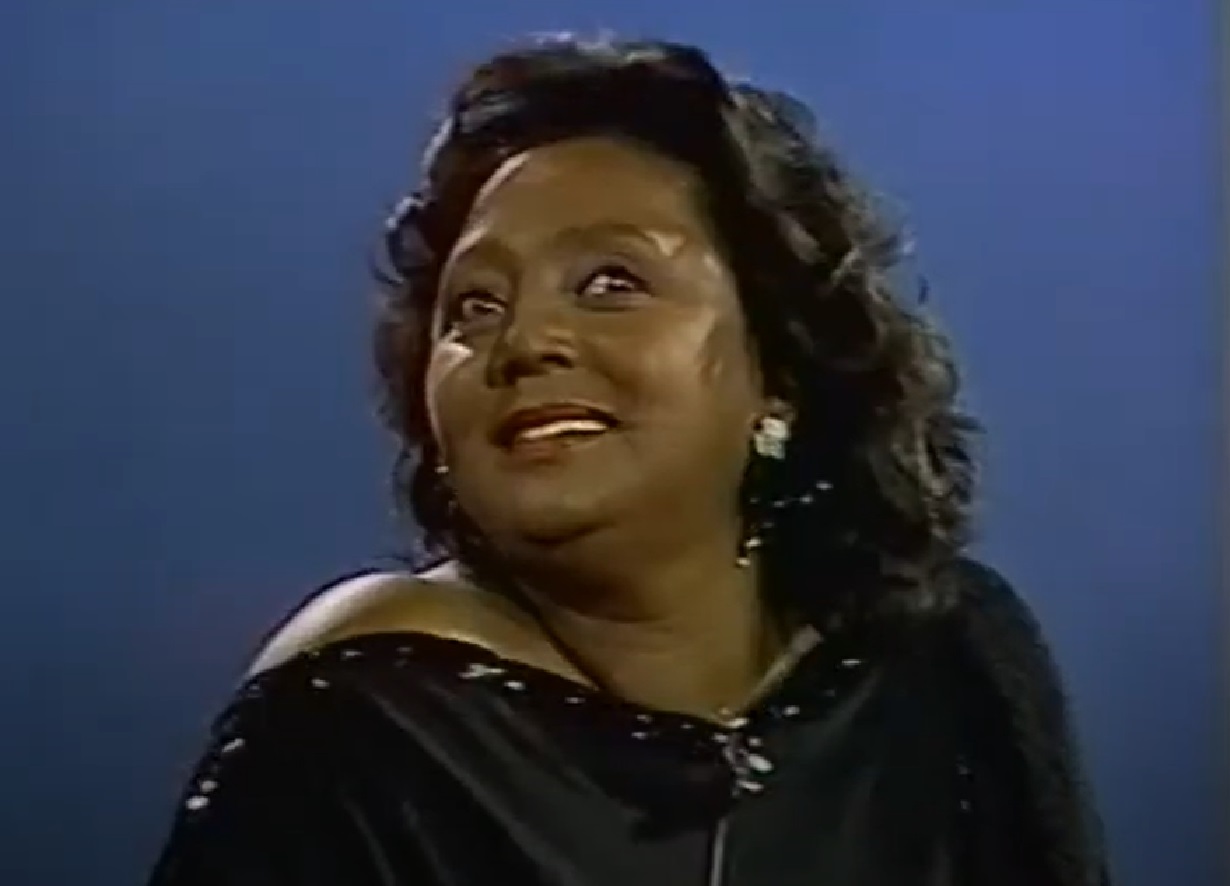 Metromedia, The David Susskind Show - (1958–1987)
Metromedia, The David Susskind Show - (1958–1987)
40. She Rose Again
While fundraising, Bryant saw an opportunity to use her talent to get more money for charity. She decided to sing. Of course there were no low cut dresses and certainly not her trademark silver hair. She didn’t even wear makeup. But she did sing, and the money came rolling in. Bryant’s return to singing brought her out of obscurity and caught the attention of a very important man.
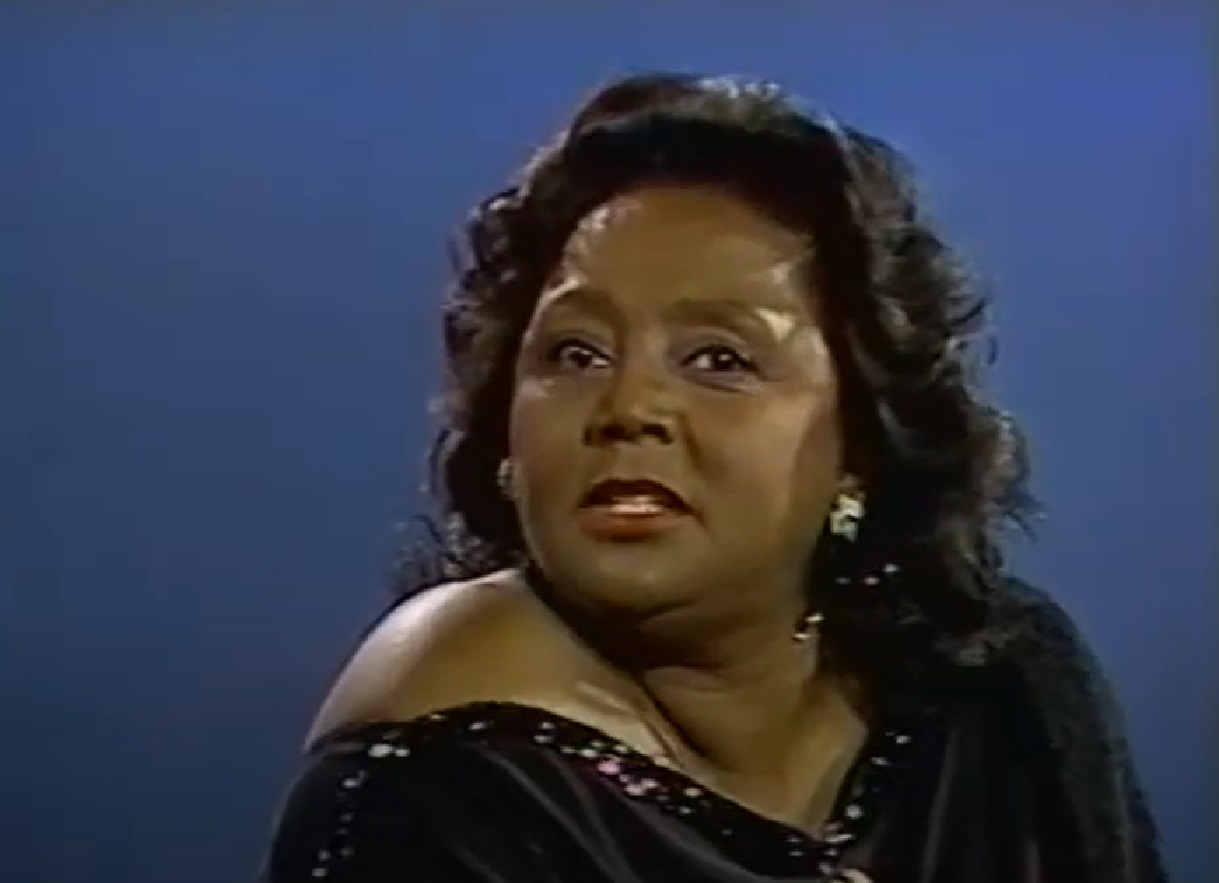 Metromedia, The David Susskind Show - (1958–1987)
Metromedia, The David Susskind Show - (1958–1987)
41. She Met With The King
Martin Luther King Jr had always been a fan of Bryant’s singing, but now he had a new interest. She was getting well known for charitable actions, and he wanted to work together with her. Bryant and King Jr often met up and discussed how to provide the Black community with their basic needs.
Her discussions with King Jr sent Bryant in a new and awe inspiring direction.
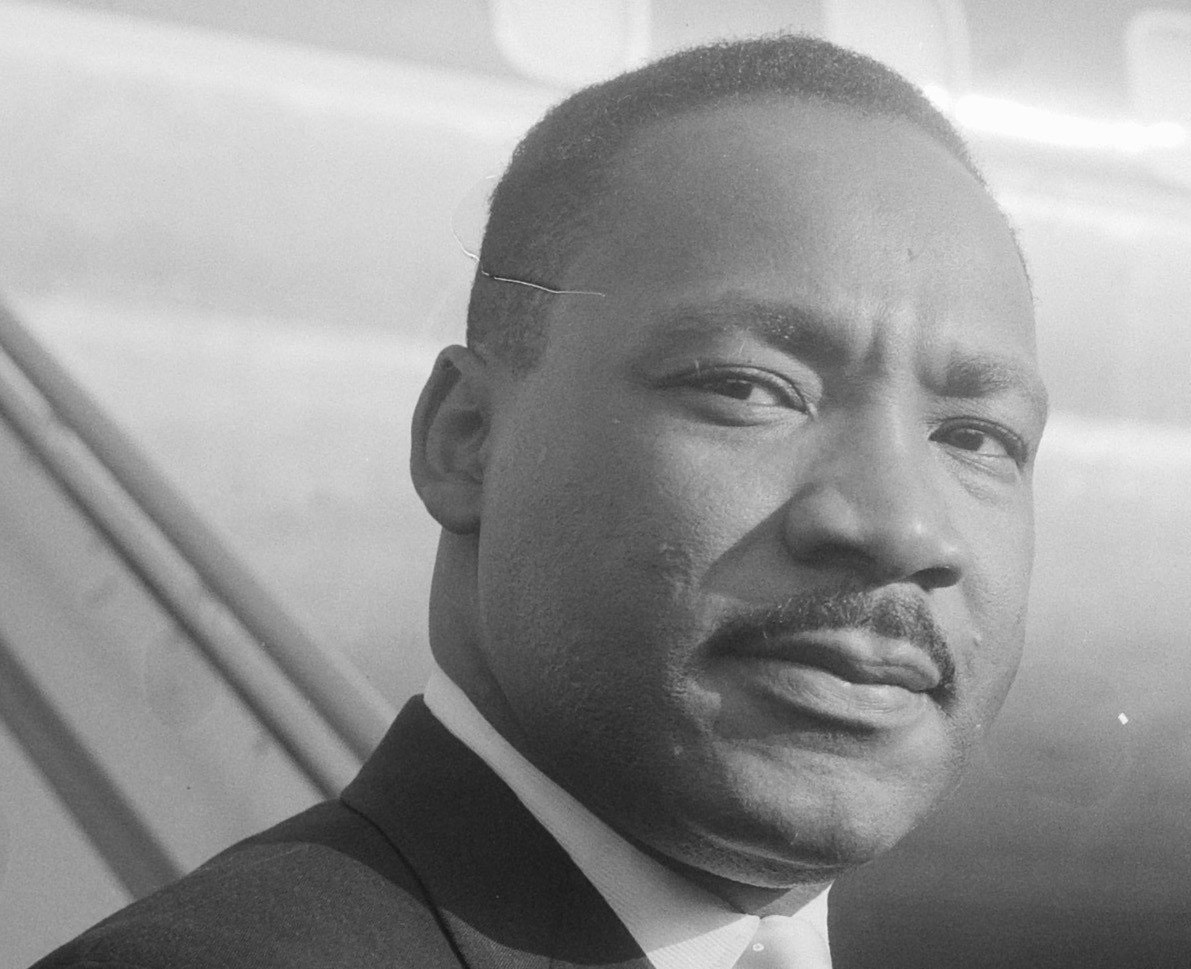 Hugo van Gelderen / Anefo, Wikimedia Commons
Hugo van Gelderen / Anefo, Wikimedia Commons
42. She Wanted To Change America
Bryant was drastically changing her efforts. She didn’t just want to provide necessities to Black families, she had a much larger goal. She wanted to end discrimination in America. The first place she thought to take her new pursuit was back to the Seventh Day Adventist Church. Sadly, she didn’t get the answer she wanted or expected.
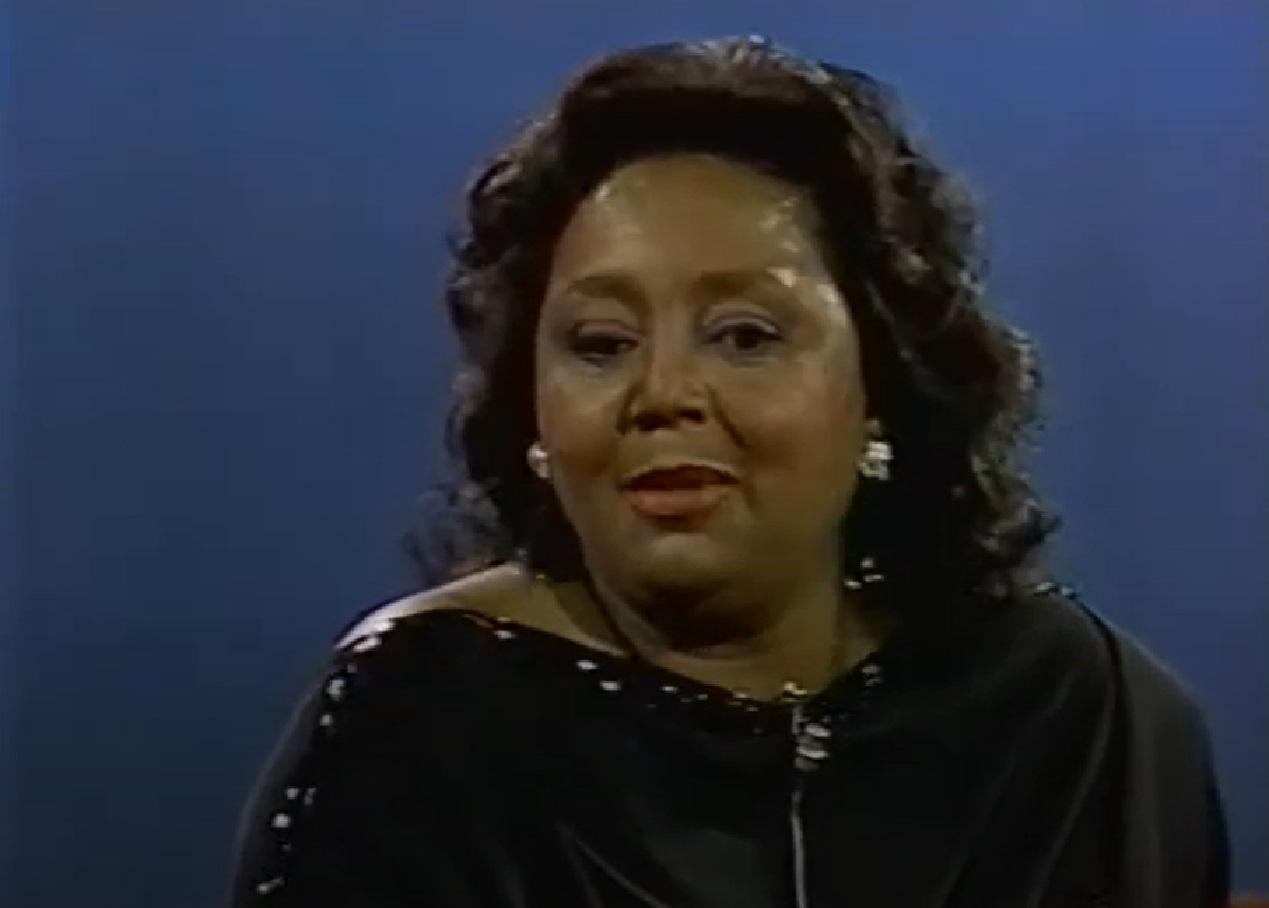 Metromedia, The David Susskind Show - (1958–1987)
Metromedia, The David Susskind Show - (1958–1987)
43. She Sang For Kids
To Bryant’s surprise, the church didn’t want to participate in “earthly matters” like ending discrimination. Even though their attitude crushed her, Bryant stayed with the church. They eventually sent her to Washington DC, where she worked in a kindergarten class and used her beautiful voice to entertain the kids.
Little did Bryant know, but someone important was listening in on this classroom.
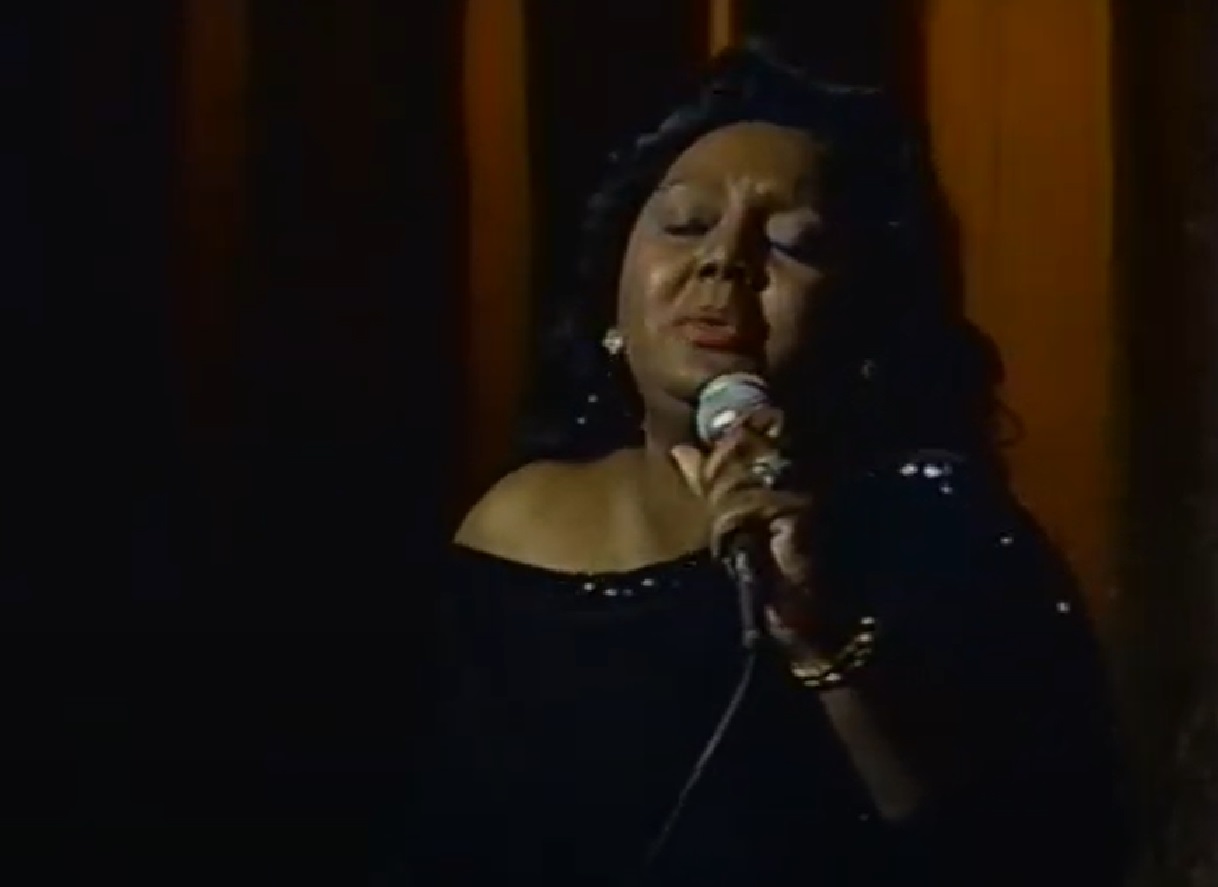 Metromedia, The David Susskind Show - (1958–1987)
Metromedia, The David Susskind Show - (1958–1987)
44. She Surprised Him
A voice teacher named Frederick Wilkerson was visiting that kindergarten class, and he couldn’t believe his ears. He was sure it was Joyce Bryant singing, but thought that it couldn’t be true. After confiriming it was her, he made Bryant an offer. He knew she didn’t want to return to the world of clubs and bars, but he had other plans for her—plans that would hurl Bryant right back in the spotlight.
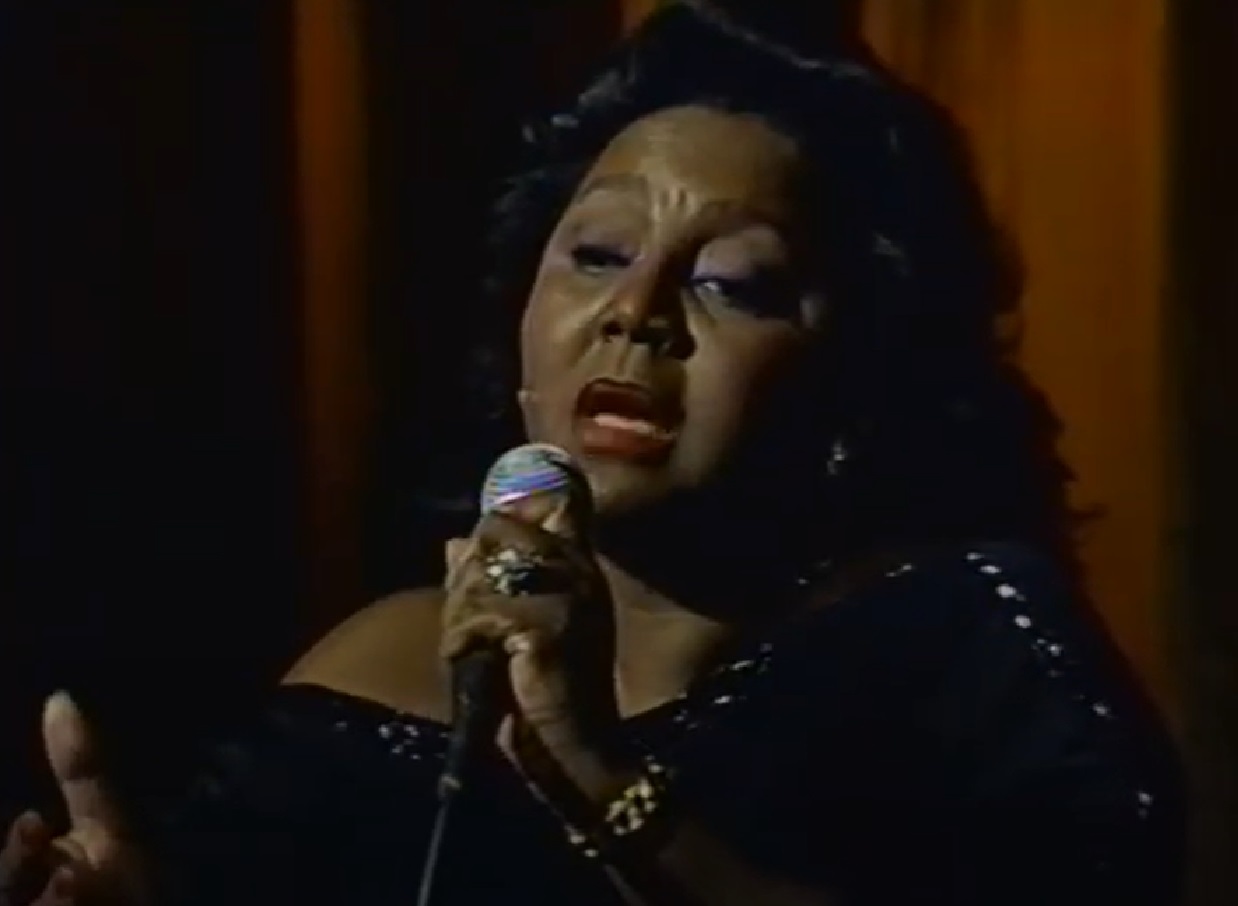 Metromedia, The David Susskind Show - (1958–1987)
Metromedia, The David Susskind Show - (1958–1987)
45. She Changed Her Act
Wilkerson’s idea was to classically train Bryant’s voice. She studied with Wilkerson and by the 1960s, she was ready to debut her new style of music. She performed with Symphonies in Rochester and Washington and went abroad to perform in Europe. Her life had completely changed, but then someone from her past came back to tempt her.
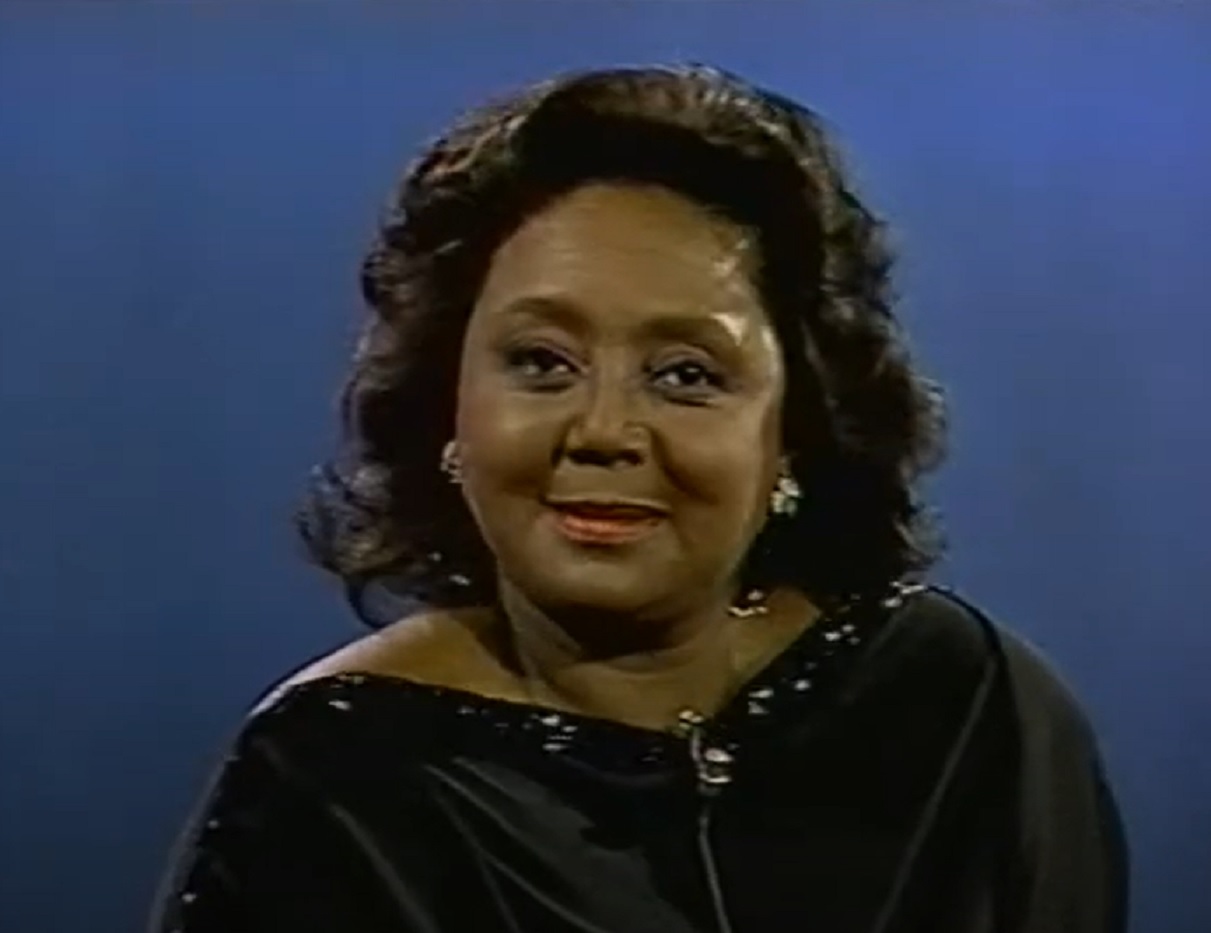 Metromedia, The David Susskind Show - (1958–1987)
Metromedia, The David Susskind Show - (1958–1987)
46. She Had Demands
In 1965, a man named Howard Sanders had made a promise to Bryant. He said that he would one day create a space for Bryant to sing what she wanted to sing. Well, Bryant eventually got the call that Sanders had indeed built a space. It was a restaurant at Broadway and 63rd in New York City and it was called Cleo.
This offer was a little too close to Bryant’s past life, but she agreed to perform with some very strict demands.
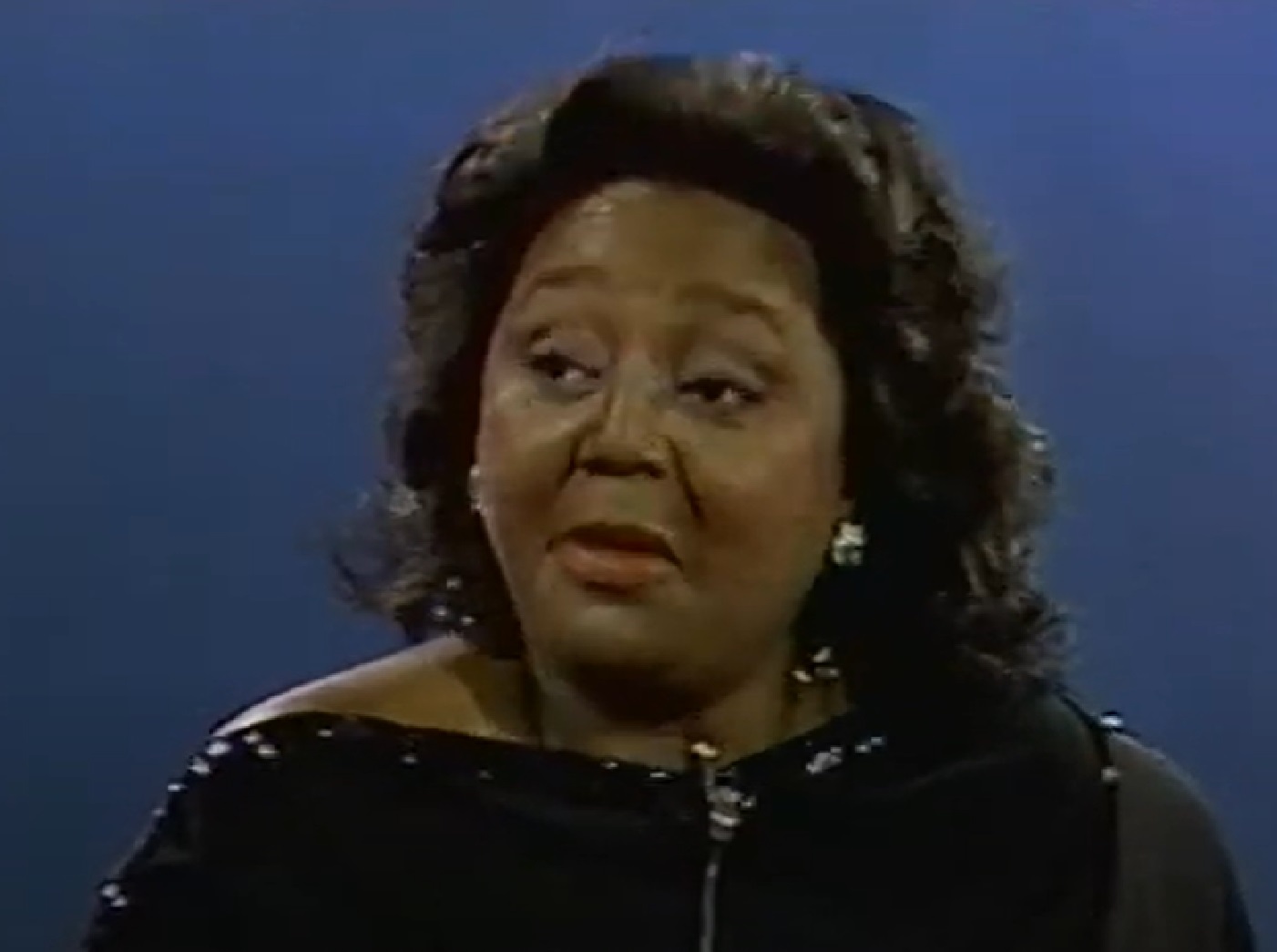 Metromedia, The David Susskind Show - (1958–1987)
Metromedia, The David Susskind Show - (1958–1987)
47. She Filled The House
Bryant had no intention of singing any pop songs at Sander’s restaurant, but she would do spirituals and classical numbers. It didn’t matter what she sang, audiences poured into the restaurant just to hear her stunning voice. You’d think that Sanders would be happy with a full house every night.
As it turned out, he wasn’t happy at all.
48. She Wasn’t Good For Business
Bryant’s performances at Cleo mesmerized her fans. In fact, it mesmerized them a little too much. The patrons were so into the performance that they forgot to order any food. This was a restaurant after all, and Sanders had to make a buck. Five nights after starting this gig, Sanders heartlessly fired her.
Bryant had once again caught the performing bug, and now she was desperately searching for a way to continue.
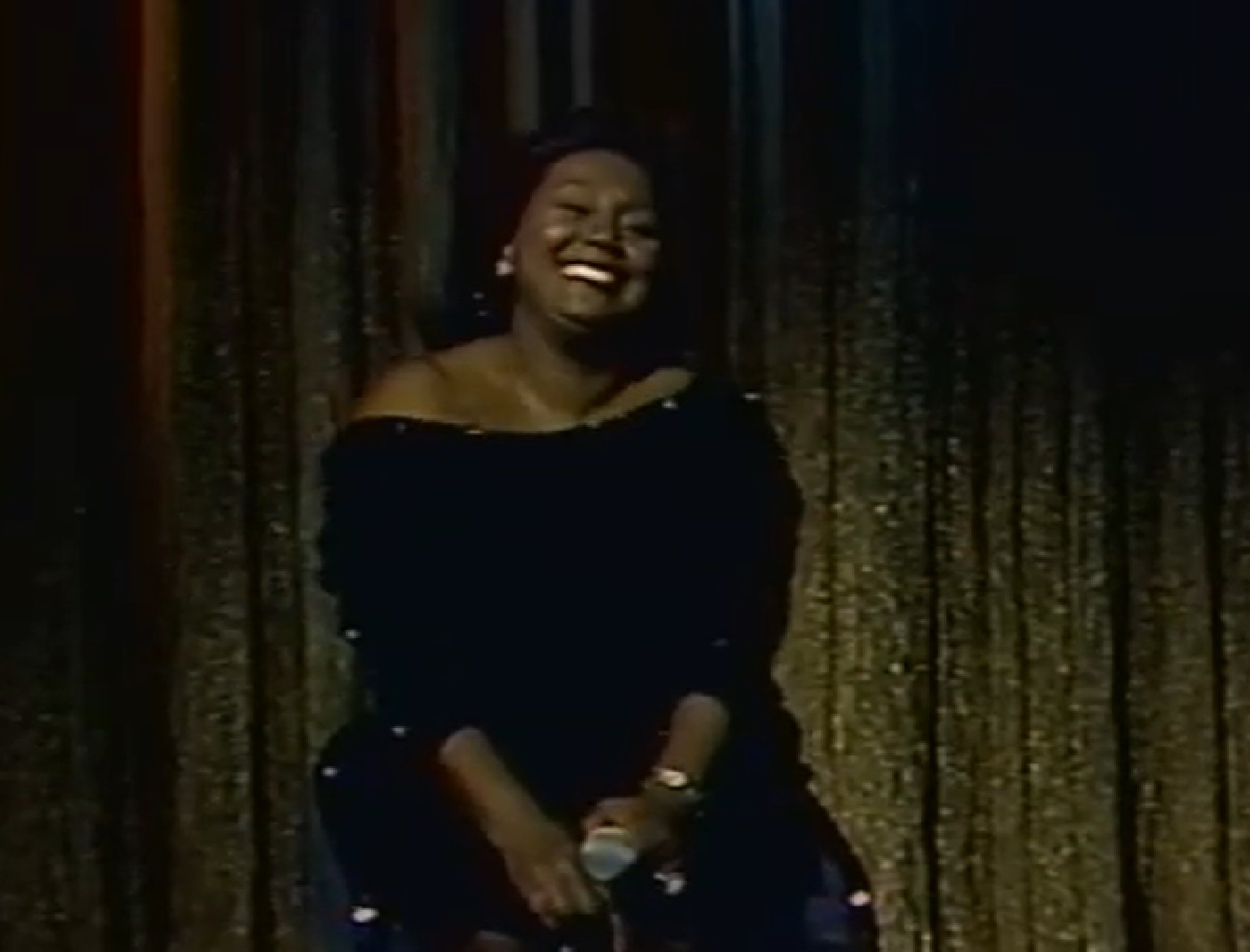 Metromedia, The David Susskind Show - (1958–1987)
Metromedia, The David Susskind Show - (1958–1987)
49. She Got On Board
Bryant took advantage of her unemployment and jumped on a cruise ship as an out at sea performer. While cruising the seven seas, she met up with a conductor who was working with Sammy Davis Jr. One thing led to another, and suddenly Bryant had agreed to appear on Davis’s TV show.
Bryant was getting dangerously close to returning to the world she had so severely cut ties with.
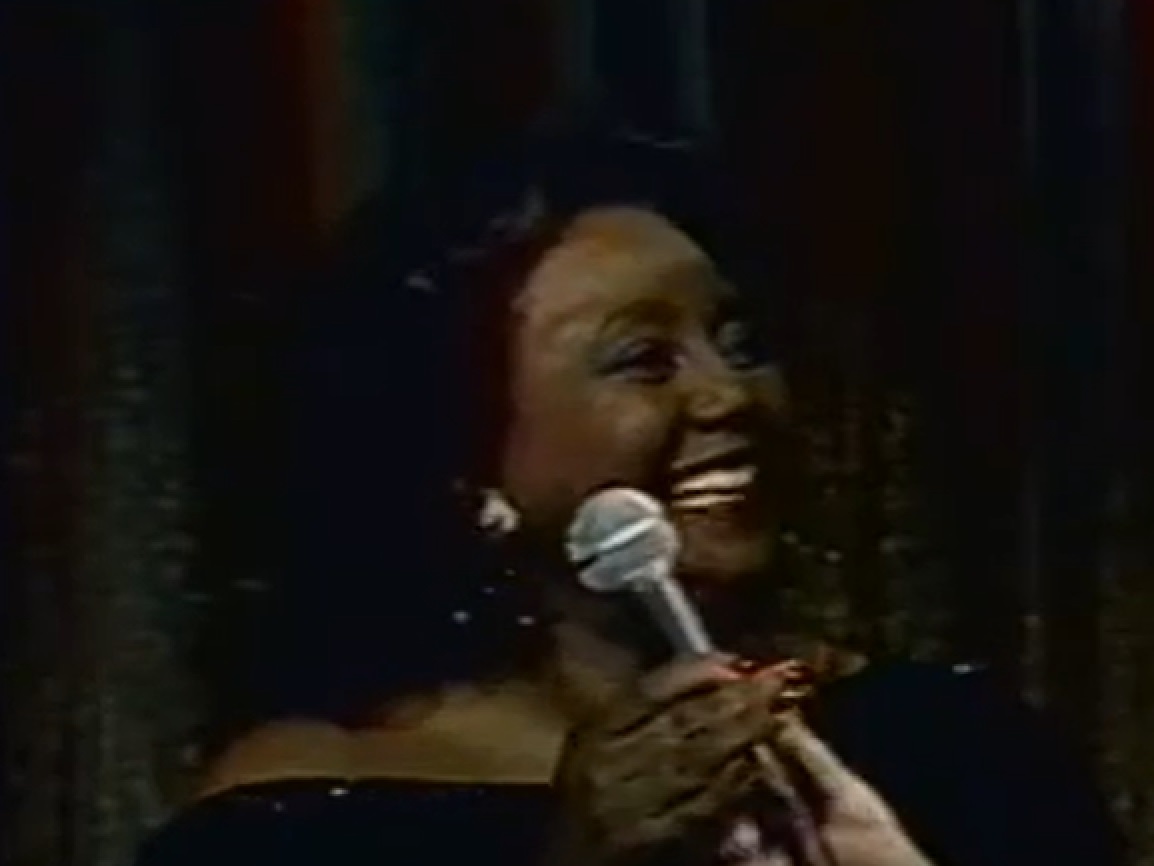 Metromedia, The David Susskind Show - (1958–1987)
Metromedia, The David Susskind Show - (1958–1987)
50. She Passed It On
Her appearance on The Sammy Davis Jr Show didn’t draw Bryant back to the world she had rejected. She did perform jazz numbers into the 1980s and then finally put the microphone down for good. But she wasn’t through with music. As she grew older she offered her services as a vocal coach for actors like Raquel Welch and Jennifer Holliday.
Bryant passed peacefully on November 20, 2022 at the ripe old age of 95.

